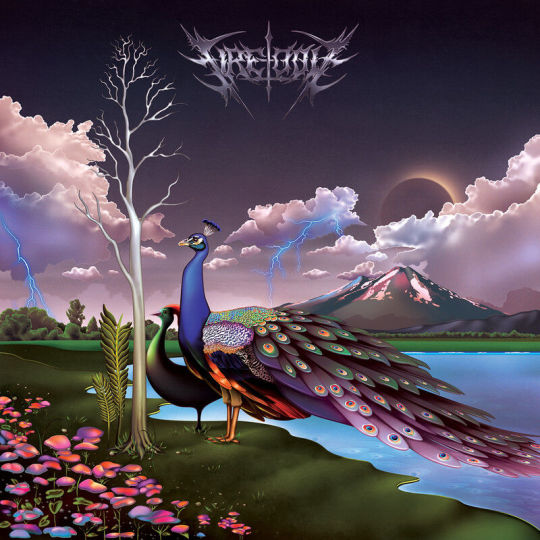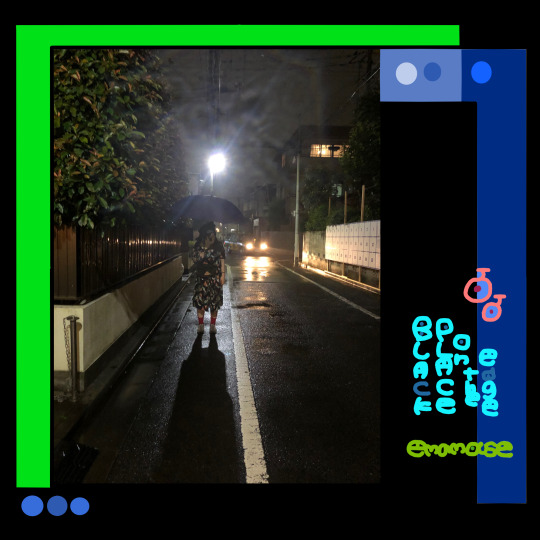#Beijing guitar classical
Explore tagged Tumblr posts
Text
youtube
dulce
#vasco nacho creative#Youtube#instrumentals and audio vasco nacho#Beiyan Liu Guitarra#Beautiful#el barrio#Beijing guitar classical#altamira#artwork#tráemelo técnico
1 note
·
View note
Text
NCT DREAM 엔시티 드림 'Hello Future' MV
youtube
RENJUN - POB - CHINA - NO -
2 YR - MILITARY - IN - KOREA -
5'7 FT - I - LOVE - MINIATURE -
DOGS - CHAMPION - BLOOD -
LINES RENJUN - NCT DREAM -
OUR - LITTLE WHITE PEANUT -
HE's - SO BEAUTIFUL - BLOND -
FORGOT - 2 - MENTION - YES -
2 - PROTECT - KIDS - AFTER -
EATING - WHAT - THEY - GET -
REGISTER - PULSE - THE 2ND -
FINGER - THEY - ATE - WHAT -
WE - GAVE - FORGOT - 2 YES -
MENTION - LEGAL - PERMIT -
RED - PANDA
24/7 - HOLIDAYS
(DEFEAT - 7 - ELEVENS)
(NO - BACKPACK BAGS)
(ILLEGAL - MISOGYNY)
(HARM - ABUSE OF WOMEN)
MASCOT PLUSH RED PANDA
DISNEY - PIXAR
'TURNING - RED'
SPECIAL - DAYS
HUGE - MEILIN MEI LEE
AGE 13 CANADIAN CHINESE
RED PANDA - 24/7
CLASSICAL - GUITARS
SALAD - BAR - CHEAPEST
CHEAPER THAN WALMART
THAN - 'PUBLIX' - 'LOWEST'
KIDS - FREE
SENIORS - FREE
BOTH REGISTER - 2ND FINGER
WHEN - THEY - EAT - WHAT XO
BOTH - GOT - RECEIPTS - THEY
EACH BAG - SALAD - GETS -
500 BILLION - EACH - TIME -
NOT FORCED BY CRIMINALS -
GIGANTIC - NY PIZZA - $1.00 -
0 CAL - DRINKS - $0.25 BOTH -
FOREVER - SMALL PLASTIC -
CONTAINER - ICE - CUBES -
$0.25 - WE - WILL - SHARE -
BRAND - OF - WATER
NO - HIGH FRUCTOSE
CORN - SYRUP FRUIT
JUICES - $0.25 - FOREVER
LEAN - CUISINE
MARIE CALLENDER's
STOUFFER's
BANQUET
WE'RE EATING EVERYTHING
RAMEN - NOODLES - FREE
MICROWAVES - FREE BOIL
BOILED - WATER - NAMING
BRAND - EAT - INSIDE - EAT
OUTSIDE
BEST - SUSHI
BROILED - EEL - TERIYAKI -
SAUCE - REAL - CRABS JP -
INARI - TOFU - POCKETS
CHEAPEST
LIKE - PUBLIX - FRESH -
BREAD DAILY - CHEAP -
LOVE - MULTI - GRAIN -
LOVE - PLANT BUTTER -
CREATING - THEM - AT -
MY CHATEAU - IN - BRITTANY -
LAMBS - 4 - FINEST - WOOL 2 -
GOATS - COWS - FINEST MILK -
A 2 - FINEST CHEESE - CHEAP -
RED - PANDA
24/7 - HOLIDAYS
VILLAGES - BRITTANY
AND - PARIS - FRANCE
SEOUL - JEJU ISLAND
SOUTH KOREA
TOKYO - JAPAN
MIAMI - CALIFORNIA
TAX - FREE - HONG KONG
BEIJING - SHANGHAI CHINA
MAKATI - MINDORO ISLAND
TORONTO - CANADA
USA - WORLDWIDE
OLYMPICS - FIFA - SPONSOR
BEAUTY PAGEANT SPONSOR
USA CHEERLEADERS
MAJOR - SPONSORS
RED - PANDA
24/7 - HOLIDAYS
DEFEAT - (7 - ELEVEN)
DAILY - INTERNATIONAL
AMERICAN - EUROPEAN
GRILLED BURGERS
BACON - UNCURED
TERIYAKI MUSHROOM
BURGERS - TASTY
LONG - HOT DOGS
FINEST - CATTLES
PILLS - CATTLE - CHICKEN
THEIR - HEART - STOPS JP
BEATING MOST PEACEFUL
RANGE - FREE - CHICKEN
LARGE - ORGANIC - EGGS
CHATEAU - IN - BRITTANY
MOSO - BAMBOO - KINGS
ONLY PLANT ENRICH LAND
APPLE TREES - 42 DEGREES
SELLING - SWEETEST
ORGANIC - APPLES
LARGE - ORGANIC - EGGS
APPLE TOOTHPASTE
ANTI - AGING - GUMS
ANTI - AGING MOUTH
SELLING - AT - OUR -
LEGAL PERMISSION -
RED - PANDA
24/7 - HOLIDAYS
CLASSICAL - GUITARS
KIDS - SENIORS - FREE
LOWEST - PRICES - YES
FRESH - INDIAN CUISINE
PHILIPPINE - FOODS - PH
TAHO - PALAMIG DRINKS
FRESH - ITALIAN CUISINE
CAKES - COOKIES - DARK
CHOCOLATE CHIP WHITE
CHOCOLATE CHIP COOKIES
DEFEAT - '7 - ELEVEN' - 24/7
RED - PANDA
24/7 - HOLIDAYS
COMING - NEXT
SEAFOOD - ALIVE - BOXES
INSTRUCTIONS - HOW - TO
REAL - EASY - CRABS -
SHRIMPS - LOBSTERS -
DEFEAT SEAFOOD - PRICES
RED PANDA - 24/7 - COMING
2 notes
·
View notes
Text
Beyond the Story
In 2001, Hong Kong director Wanting Cheung, perhaps out of curiosity, turned her camera on the rock youth in Shucun, a suburb of Beijing, and made a "rock movie" called "Beijing Music and Road". In fact, why did she sacrifice the near for the distant? Beyond is the good material around you.
The word "乐与路" that many people don't understand is an extension of "乐与路", which is the Hong Kong transliteration of Rock & Roll. But, is Beyond considered a real rock band, or is there rock music in Hong Kong?
People who have this kind of doubt will take European and American rock music as their standard. In front of it, Chinese rock music really pales in comparison. Beyond is not the most technically outstanding rock band, and even they prefer ordinary pop music. However, the Beatles are also simple and beautiful, which does not hinder their greatness. The bloodiness, undying heroism and idealism in Beyond's music are the essence of rock and roll. In their music, the great Great Wall is written as a broken wall, and the focus is on those innocent lives thousands of years ago; "The last sacrifice of war is children." The song "Amani" sung in Kenyan is a tribute to war. Accusation... Huang Jiaju's crying voice is a registered trademark of Beyond. It is different from today's pretentious voice. His hoarse singing carries contempt for power, sorrow for people's livelihood, and no distinction between truth and falsehood, right and wrong. The upside-down world needs a clear black and white. Boys born in the 1970s have all seen the video of Beyond's sweaty concert, where they would cross their hands to form a flying dove of peace - that was Wong Ka-kui's classic gesture when singing "Amani". In the era before Cui Jian, Black Panther, and band beaters, Beyond was the most friendly rock music for civilians.
In his last interview before his death, Wong Ka Kui said: "The biggest gain in the past 10 years is that some music fans know how to pick up the guitar and play music, know what drums are, what guitar is... It doesn't matter whether Beyond exists in the future, because we have sown the seeds The seeds began to sprout." To this day, some young people in Hong Kong still sing Beyond's songs to the stage when they form their own bands. Nicholas Tse and Lin Yilian will also sing "Glory Days" at their concerts.
For the Beyond band, they have been swinging between rock and business. The best-selling music may not be their favorite, and the many efforts in music may not get the greatest response. "When I first formed the band, I had a lot of fantasies and longings. I imagined that I would have my own recording studio, or even my own building or company in the future - but in the end, I only got a band room-like recording studio. This is a very difficult road to follow. ." Huang Jiaqiang said.
Joy and anger are also the music path of Beyond band for 20 years.
glory days
(1983-1993)
"Forgive me for my unruly, indulgent love of freedom in this life, even if I fall down one day." At 4:15 pm on June 30, 1993, 31-year-old Huang Jiaju fell in Japan and fell into a coma for 6 days and fell permanently. That day, that year, became the dividing line between the band Beyond’s 20 years.
The 10th year of Shangshuo lasted until 1983. In the popular "band" trend in Hong Kong, several boys, Wong Ka-kui, Yip Sai Wing and Wu Lin, in order to win the competition in one fell swoop, or perhaps to transcend themselves forever, they named their temporary band Beyond.
In the next two years, Wong Ka-kui's younger brother Wong Ka-keung and Wong Guanzhong, who designed posters for the band, joined one after another. Beyond's songs were included in the rock compilation album, and they held the "Forever Waiting" concert at their own expense, becoming the leader of Hong Kong's underground bands.
In 1986, when the concept of DIY had not yet been born, the Beyond band released its first album "Goodbye Ideal" with astonishing courage. The production, distribution and even the cover design were all handled by themselves. The emergence of Beyond was recognized by the mainstream music industry. It shocked the world and won a contract with a record company.
Going from the underground to the ground does not mean that it is finished. During the periods of "Forever Waiting", "Arab Dancing Girl" and "Modern Stage", Beyond was still lingering on the edge of the stage, waiting, until the double platinum-selling album "Secret Police" in 1988. "Earth" from the album was Beyond's first hit song and ranked among the top ten hits of the year, while "Like You" was one of the most radio-played songs in 1988. In the autumn of this year, the band was invited to perform two times at the Capital Stadium in Beijing. However, they were not very popular among Beijingers who could not understand Cantonese. Only half of the audience was left at the end of the show, and the most enthusiastic scene at the venue actually occurred when Huang Jiaju When singing Cui Jian's "Nothing". In the same year, early member Liu Zhiyuan left the group, and the four-in-one Beyond became a permanent member.
Songs such as "Really Love You" and "Days Gone" continued to gain ground for Beyond in 1989. They appeared in Johnnie To's movie "Lucky Star" and transformed from a simple band into an idol group. . In the early 1990s, Beyond was already Hong Kong's top band, combining the popularity of a mainstream band with the creative freedom of an underground band. 1990's "Glory Days" was a tribute to Mandela, and "The Face Party" pointed the finger at the bizarre entertainment industry. In this year, they released their first Mandarin album "The Earth", targeting Taiwan and the mainland, and its influence spread to Southeast Asia.
In 1991, Beyond finally got its wish and appeared in the Hong Kong Red Rocks Arena and starred in the inspirational movie "Don't Bully the Young and the Poor" (co-starred with Faye Wong, who was also a member of Xinyibao Records at the time), and "Beyond+Grasshopper", "Beyond Summer Vacation" and other obvious TV programs that leveraged the band's popularity to gain ratings also began to be popular. The company's image of "youth idol big boys" designed for the four boys reached its peak this year. At the same time, their seventh album "Hesitation" was accused of being the most commercial With a record, some people began to wonder, "Did we abandon Beyond, or did Beyond abandon us?"
A passionate rock musician is involved in the strange circle of youth idols. Behind his unlimited glory is a gray track, and business operations bring about split personality. Huang Guanzhong joked many years later: "Beyond won numerous awards back then. The climax of each award ceremony was not on the stage, but in the band room in the back seat on the second floor. Countless times we carried a video camera to film a certain channel." "Best Group" award, as soon as the camera turned, someone took a softball bat and swung it hard, and the exquisite rubber base burst into two quarters, and then the whole audience cheered. This is the only way to vent, and there are only a few short moments. Minutes, let us regain our self-esteem!
The radical behavior reflects Beyond's unwillingness to give in. They are unwilling to be just a pop rock band. Becoming an international band has always been Beyond's distant dream. "Beyond knows very well what kind of music the Hong Kong market needs. We can only lower the level as much as possible, so the ideal of breaking out of Asia is very slim." Huang Jiaqiang said. It is precisely because of this that they ended their long-term cooperation with New Art Treasure in 1992 and went to Japan to develop, almost disappearing from the Hong Kong music scene. "Our hometown cannot let go of our ideals." This phrase in "Paradise" was the cry of anger back then.
Beyond's dissatisfaction was not quickly healed in Japan, and initially there were big differences in music with the Japanese producers. Even so, in the first year, Beyond still delivered the "Continue the Revolution" album that was different from the past. Huang Jiaju's singing in the song "Peasant" became cold and deep, and the Japanese electronic music master Kitaro's arrangement for "The Great Wall" The music also gives this band without keyboards an ethereal and vast artistic conception.
"Joy and Fury" is the last record of the four-in-one Beyond. After many years of not daring to say loudly that they were musicians, Beyond broke out loudly in 1993, 10 years after forming the band. What they love is "Joy and Fury" is rock music. They were also actively preparing to hold a large-scale 10th anniversary concert at the end of the year.
On June 24, 1993, an accident occurred during the recording of a game show on Fuji TV in Tokyo. The Chinese music scene lost a music "revolutionary" and an era because of this program that had nothing to do with music. The four-person Beyond was written into history, and "Broad Sea and Sky" was the swan song of that year.
threesome
(1993-2003)
"Three monks have no water to drink" is the coldest description of Beyond after Wong Ka Kui's death, but the objective fact is that in the next 10 years, they almost did not sing any popular works. Lyricist Liu Zhuohui, who has collaborated with Beyond for a long time, said: "The music of the three of them is more self-contained, more like a Western band. They don't just sell one or two songs, but they sell the sound of a band."
The Doors recently regrouped, and some people mocked the veteran rock band without Jim Morrison as "the Doors." Indeed, an excellent lead singer is usually the soul of the band, just like Wong Ka Kui to Beyond. Will his departure also prevent the Beyond band from transcending themselves?
In the early years of Pink Floyd, Syd Barrett, the creative soul of the band, left the band due to drug problems. As a result, under the leadership of Roger Waters, the band later produced two rock music masterpieces, "Dark Side Of the Moon" and "The Wall"; Joy Division's After Ian Curtis hanged himself, the remaining members reorganized New Order and also became important figures in instigating the Electro-Dance trend. We always hope that the same thing will happen to Beyond.
The death of Huang Jiaju made the three members feel like "we can't start before everyone is here" for a long time. To this day, they still put an empty microphone in every performance. There is a song called "We Don't Wanna Make It Without You" (We Don't Want to Play Without You) in the first album of the trio's period, "Back Seat on the Second Floor", and this sad sentence is repeated throughout the song.
After a year's rest, Beyond was back on the road in 1994. Anger and sadness are the keynotes of "Back Seat on the Second Floor". Wong Ka-keung, who replaced his brother as the lead singer, also intentionally or unintentionally imitated Wong Ka-kui's singing voice. Just like New Order's debut album "Movement", which still has a strong shadow of Joy Division, this is a transitional work that cannot escape the shadow of past stereotypes and sadness. After another rough "Sound", the trio of Beyond began to make new sounds in "Beyond is Wonderful" and "Please Let Go".
The album "Please Let Go", released in 1997, passionately describes the complex mentality of Hong Kong people in the context of the transfer of power. "Big Time" opens with a clear meaning and is full of confusion; "Please Let Go" is about the hard-to-leave mood before returning. This song won the Best Rock Song Award at the Metro Music Awards that year, and they also won the Best Rock Song of the Year. Favorite Band Award for the group and several other stations. In addition, the album also includes "Echo" written to the Hong Kong Deaf Welfare Promotion Association and "Who Named Me" written to the International Fund for Animal Welfare. They are still the Beyond who takes society as their own responsibility.
In the following years, Beyond successively released 5 EP records, and the pace finally seemed to be in a hurry. Wong Ka-keung said: "Although everything in Hong Kong is very advanced and developed, many places are regressing. People will not calmly appreciate the effort you put into every record. To survive in Hong Kong, if you hope to release an album every few years and be able to sell it, It's impossible for a long time." Throughout the 1990s, the idol music scene that "used waste as treasure" became more and more solid. Until the indefinite hiatus was announced, Beyond was still the only well-known band in Hong Kong. Signed to Rolling Stone Records, they once pinned their hopes on the Taiwanese music scene, but most of their Mandarin albums such as "Love and Life" received a mediocre response.
At the end of 1999, Beyond released the "Good Time" EP record. In the same year, their concert results were not satisfactory, and the band announced its temporary disbandment and independent development. Of course, whether a band has hits or not is not the only criterion for measuring the quality of a band, but Beyond, a trio, is in an awkward position. They are burdened by the achievements of the Wong Ka-Kui era, but at the same time they want to have more experiments in music. Wong Ka-keung said: "If Ka Kui was still with us, there would never be so much pressure, because his role in the band is like a chef in the kitchen, and we are the chefs responsible for the cooking process. There is no family Beyond is like U2 without Bono." In addition, the patience and tolerance of the music industry are no longer what they used to be. The choice of Beyond is somewhat of a helpless move.
This year, the three sons of Beyond reunited to release a new EP album "Together". The "20 Years of Anti-Japanese War" concert in early May was an unprecedented success, and three more performances were held in June. Beyond became a hot spot for several major record companies to compete for. Although this result is slightly ironic, it is consistent with their Appealing power is not unrelated to years of persistence. Ten years of life and death are uncertain. On the 10th anniversary of his death, Huang Jiaju, who is under the pressure of despair, should also smile when he sees the band's achievements today.
continue the revolution
——Solo years
There are too many bands coming out under the scary banner of revolution. However, after a year or two they fend for themselves without even the test of time. Do a group of men who have been rocking for 20 years still doubt the thoroughness of their revolution?
In 1998, when Beyond was 15 years old, a Hong Kong music magazine asked them to talk about their feelings. Huang Guanzhong said: "It's not that I plan to finish it after 15 years. 15 is just a neater number than 16." This can probably be read as the revolutionary slogan of these men. The belief of "Always be free and always sing my songs" has been integrated into the blood. Whether it is solo or creating for other singers, these brilliance are still the glory of Beyond.
Huang Guanzhong
Since the three separated, the former guitarist's development achievements have been the most eye-catching.
Wong Guanzhong set up his own recording studio and signed a contract with Universal Music. In 2001, he was the first to release his solo album "Paul Wong". His avant-garde style was staggering. The album still contains anger and agitation that have not diminished with time. Among them, "Hong Kong Must Have" and "Hong Kong Must Have" "Good Night Hong Kong" is a continuation of the social consciousness that was deeply rooted in the Beyond era. "I record my feelings about this era, rather than recording anything about this society. Although the final result is to record this society, I am actually recording myself."
The subsequent albums "Black and White" and "Same Root" were released one after another, both in terms of styling and songs. Their unbeatable masculine aura is clearly distinguishable from many records of minor romances, and his guitar skills and creative talents are also increasing day by day. Mature and rich, and showing signs of development towards jazz.
In addition to personal development, Huang Guanzhong also formed the band "Khan" with drummer Gong Shuoliang, guitarist Dino and LMF bassist Jimmy, and is committed to supporting new generation bands such as LMF. Mainland musician Zhang Yadong once wrote a song for Huang Guanzhong's first solo album. In his opinion, Huang Guanzhong's current music is much better than that of Beyond.
other works--
Nicholas Tse's "Everyone Is Stupid", Andy Hui's "Don't Let Me Drink Too Much", Karen Mok's "Oh My God", Chen Xiaodong's "Black Tie"
Jordan Chan's "Psycho", Stephen Chow's "Amazing", Lin Haifeng's "Diary of a Madman"/"Good Dog"
Wong Ka-keung
During the Beyond period, his younger brother Huang Jiaqiang was a silent and lovely bass player who created masterpieces such as "Cold Rainy Night". After his solo career, he set up his own recording studio at home to focus on expanding his personal space.
In October 2002, Huang Jiaqiang released his solo album "Be Right Back", in which he laughed, cursed, and criticized current ills. The record has both pop potential and a distinctive personal style, and is more gentle than Huang Guanzhong. "Panic Disorder", "The Letter Is There", and the collaboration with Lu Qiaoyin to perform the work "Guardian Angel" written for Faye Wong, all have good reputations.
other works--
Eason Chan's "Love Has No Control", Karen Mok's "The Believer", Leo Ku's "Intentional"/"Memory Highway", Li Huimin's "Love Breaks"/"In fact", Faye Wong's "Guardian Angel"/"Perfunctory", Jordan Chan "Good Decision", Kelly Chen "We will meet one day"
Ye Shirong
After leaving Beyond, drummer Ye Sai Wing signed a contract with EOL Records, but the company failed to honor the contract. As a result, the song "Scam" appeared on his first album "Beautiful Time Machine" released in August 2001. , although he composed nearly 40 songs, Yip Sai Wing only carefully selected 5 for publication. This record, for which he wrote, composed, and sang, was completed in the "back seat on the second floor" that brought countless brilliance to Beyond. The "back seat on the second floor" is the property of the Ye family and has been used as a rehearsal for the Beyond band for many years. ,Studio. In addition to his personal development, he also often makes guest appearances in some emerging bands. In 2002, he suffered the blow of his fiancée's unexpected death. After learning from his pain, he will produce more profound and moving works.
other works--
"The End of the World, a Cold Strange Land" by Lu Qiaoyin
2003.5.3 Let’s encourage each other tonight
Passed the ticket check, passed the security, passed the health inspection, and finally entered the Coliseum. The triangular stage echoes the harmony of only three people tonight, making up for the regret of missing one person. After a month of being deserted, it was now packed to capacity. I'm here, and I still have my mask. Are you welcome?
At 8 o'clock, the audience surrounded the front, rear, left and right positions. A carefree face, shaking colorful fluorescent sticks, laughing happily. What's surprising is why they...are all so young? Shouldn't I be the youngest? Are they all fans of Beyond? Don’t you know that those Beyond who still look like they are 20 years old are all middle-aged angry men in their late 40s?
Sitting in the front row not far from Miss Zhu Yin, seeing a group of reporters surrounding her and the spotlights flashing, everyone felt a little dizzy. Fortunately, the music suddenly started playing. Surrounded by heavy electronic music and screams, I entered another time and space. Ladies and Gentlemen, welcome to our show... A deep voice called out the band members one by one in English, and the last one called out crazily: In Loving Memory: Wong Kar-kui (黄家狐). The water is boiling.
Ye Shirong stands tall in the middle, holding a drum stick and has blond hair; Huang Jiaqiang and Huang Guanzhong each stand at a corner of the stage, wearing black battle clothes and dazzling red hair. The blank space is the center of the front desk.
There was a moment of silence, the melancholy blue light was revealed, and the guitar strings jumped immediately: "Today, I watched the snow drifting by in the cold night...", a heart drifted away in the joy: it was the summer of 1993, in the past On the winding road in Clearwater Bay, the same tune played on the radio. The shadows of the trees on both sides continue to recede, the blue sky and blue sea are blowing in the breeze, Beyond, the broken wings, the days that have passed, I am not yet 20, and I am as tall as the teenagers next to me. The speeding car and the depressed mood are my green years.
Like most people of the same age, what they are happy about is not the Beyond in front of them, but the horse of that day. Since he left, nothing has moved me. Maybe our requirements are too high, maybe Beyond is also feeling pressured by past achievements and it is difficult to surpass them. Their myth was inadvertently brought to an end 10 years ago. I tried hard, but only ended up in despair. Probably all I can remember is the 1994 "Second Floor Back Seat" album. What's left? A Paul (Huang Guanzhong)'s celebrity girlfriend (Zhu Yin)? Shirong's fiancée who died mysteriously? Or was it Jia Qiang who won an over-age newcomer award last year? In 1999, Beyond announced an indefinite hiatus, and the three of them developed their own careers. Four years later, the band reunited for their 20th anniversary and held another concert, which led to speculation that they came here to make money. It was also because of this mentality that I didn’t have high expectations for the concert. I also heard that in order to recreate the heartwarming scene of the four Beyond brothers on the stage, they would use electronic projection of Ka Kui's image on the stage. I kept feeling uneasy. It seemed that the Beatles had to electronically synthesize John Lennon's voice. Recording an album is like working hard.
I saw a blurry image on the stage. "Ka Kui" was wearing a red suit, playing with the strings in front of the microphone. He was standing in the center of the stage. Paul and Ka Keung were leaning on both sides of him. Sai Wing seemed a little far away from him. Behind and above. Under the dim light, it is unreal, as untouchable as a dream. When Shirong sang, "Jia Kui left early, he is young and never grows old, and the gray track is worn into a bloody road", I vaguely felt that the voice was hoarse, and my eyes were filled with mist.
During the break during the concert, the members talked about their feelings with everyone. Paul said that playing music is not to drive a sports car, buy a house, and make a lot of money. He just asked everyone to remember that there is a rock band called Beyond; Sai Wing would like to thank Ka Kui, Cynthia (passed away) His girlfriend) supports him in heaven to continue to move forward bravely for music; Ka-keung believes that the environment does not allow rock music to exist in Hong Kong, and it is difficult for the band to survive because there are so many fans who will never leave. It sounds so high-sounding that it almost sounds like a line, but it is true. It is not an exaggeration to say that Beyond's last 10 years have been like a war of resistance. Just by being sincere to music, knowing that it cannot be done, and leading this revolution, Beyond is worthy of our sweat and shouts.
The 120-second long thunder drum call for encore (encore) is crazy. Looking around, it seemed like everyone knew where they were coming from. Sure enough, the small stage slowly rose behind him, and the three people sitting in less than a hundred feet became the focus of the camera again. Because the stage was suspended in mid-air, only those who stood high could see it clearly. After a night of madness, we no longer had any worries. We all stood on the stools - even though those were just temporary folding stools. Music takes over the soul and controls the body. I was greedy for every note floating in the air, chewing every lyric, forgetting the distance from other audiences, filming together, and singing together - "The wind and frost can't blow out the fire, no matter how much bitterness it passes..."
There were no guests, no tricks, but the 3-hour continuous music was meticulous. War drums thundered when it was exciting, and rain hit the sycamore trees when it was low. Looking at it, Beyond’s music is not only for our generation who grew up with him, but also for the new generation. How can good music make people feel outdated? As long as the singer never loses his innocence. Although fans from all over the world have passed tonight and returned to unrelated worlds, they would not recognize each other when they met. Just because we spent a night together tonight when the world is in chaos and inflammation is spreading, let's encourage each other freely!
0 notes
1 note
·
View note
Text

Monday, January 8th at 7:30pm
From China To Appalachia
Cathy Fink & Marcy Marxer with Chao Tian
Tickets : $20 advance (+$2 box office fee) / $25 door.
(this show was rescheduled from October - non-refunded tickets will be honoured)
Saint Mark Presbyterian Church 10701 Old Georgetown Road, Rockville, MD
Co-presented by the Institute of Musical Traditions and the Asian Arts & Culture Center at Towson University. Supported in part by a grant from Mid Atlantic Arts Foundation.
GRAMMY Award winning American Roots artists Cathy Fink & Marcy Marxer join with Chinese classical hammered dulcimer player Chao Tian in a show that combines music from China to Appalachia and beyond. Instrumentation includes yangqin (Chinese hammered dulcimer), gourd banjo, five-string banjo, ukulele, guitars, dumbek, cello-banjo and mandolin.
The group’s repertoire includes traditional Chinese and Appalachian music as well as contemporary and traditional music from around the world. Unusual combinations explore new arrangements to old music, such as “Dark Eyes.” Ukulele, yangqin and guitar create a new pallet for this Russian folk song turned jazz manouche tune. Cathy and Marcy join Chao in singing a Chinese lullaby, “Nani Wan�� and Chao easily adds her love of American Old-Time music to fiddle tunes and songs.
From China to Appalachia was borne of a friendship and mutual love of musical exploration experienced in jam sessions that inspired a show speaking to the power of music to connect cultures. The trio’s inaugural performances include the Music Center at Strathmore (N. Bethesda, MD) and the Ashe Civic Center (Ashe Co., NC). On their own, these awesome artists have performed at the John F. Kennedy Center for the Arts, Smithsonian Institution, Metropolitan Museum of Art, on PBS and National Public Radio.
Classically trained since the age of five, Chao Tian spent years working as an instructor and the director of the Arts Education Center at Beijing Language and Culture University (BLCU). She is a founding member of BLCU Arts College's music department and has been appointed as an officer of the International Culture Exchange Program in 2019.
Chao has performed in over 30 different countries and regions across the globe and collaborated with numerous talented musicians in many unprecedented projects. In 2015, she was accepted into the prestigious Artist in Residence program at the Music Center at Strathmore, where she met Cathy Fink. Cathy has served as a mentor-in-residence in that program for fifteen years.
TWO-TIME GRAMMY® Award Winners, Cathy Fink & Marcy Marxer Marxer are master musicians with a career spanning 40 years. Their superb harmonies are backed by instrumental virtuosity on the guitar, five-string banjo, ukulele, mandolin, cello-banjo, and more. Their repertoire ranges from classic country to western swing, gypsy jazz to bluegrass, and old-time string band to contemporary folk (including some original gems).
Cathy & Marcy have performed at hundreds of bluegrass and folk festivals and taught at close to 100 music camps worldwide. Happily known as “social music conductors” ready to start a jam session, a community sing, or create a music camp helping others learn to play and sing, the duo’s past students include Kaki King and Rhiannon Giddens.
0 notes
Text
STAR BEAM: AN INTRODUCTION

BASICS
Name: STAR BEAM (스타빔 in Korean)
Name Meaning: "7 stars bound to bring optimism (beam)"
Greeting/Motto: We are STAR B to the E A M! 안녕하세요 우리는 스타 빔입니다! (Hello! We are Star Beam!)
Fandom: "ByulBi" (literally 'star rain')
Fandom Name Meaning: "showering Star Beam with love & support so they can grow"
Fandom Colors: English Lavender & Deep Periwinkle
Member Count: 7 (5 Koreans, 1 Korean-American & 1 Chinese)
Label: MBF Entertainment (Korea), Capitol Records/Virgin Music Label & Artist Services/Universal Music Group (USA)
MEMBERS

RYUNA (류나)
Born Song Ryuna (송류나)
Birthday/Hometown: September 17, 1995/Daegu, South Korea
Nationality: Korean
Position: Leader, Lead Vocalist
Specialty: Acting, Songwriting, Harmonica
Representative Color: True Red
Representative Animal: Turtle
Face Claim: Yujeong (Brave Girls)
Voice Claim: Yuna (AOA)

CHAEHEE (채희)
Born Choi Chaeyoung (최채영)
Birthday/Hometown: June 8, 1996/Busan South Korea
Nationality: Korean
Position: Lead Vocalist, Main Dancer, Rapper
Specialty: Dancing, Rap, Singing, Acting, Drums, Volleyball
Representative Color: Classic Blue
Representative Animal: Rabbit
Face Claim: Sihyeon (EVERGLOW)
Voice Claim: Chungha

CHLOE (클로에)
Born Chloe Morisette Han
Korean Name: Han Sooyoung (한수영)
Birthday/Birthplace: August 16, 1996/San Francisco, California, USA
Nationality: Korean-American
Position: Lead Dancer, Lead Rapper, Visual, Vocalist
Specialty: English, Rap, Basketball, Dancing, Acting, Piano, Songwriting
Representative Color: 803 C
Representative Animal: Deer
Face Claim: Liza Soberano
Voice Claim: Jisoo (BLACKPINK)

HYOSHIN (효신)
Born Jung Hyoshin (정효신)
Birthday/Birthplace: October 16, 1996/Changwon, South Korea
Nationality: Korean
Position: Main Vocalist, Lead Dancer
Specialty: Guitar, Singing, Dancing, Acting, Songwriting, MC-ing
Representative Color: Kelly Green
Representative Animal: Maltese
Face Claim: Hyojung (Oh My Girl)
Voice Claim: Yeonjung (WJSN)

JEONAH (전아)
Born Jeon Baekah (전백아)
Birthday/Birthplace: November 11, 1996/Busan South, Korea
Nationality: Korean
Position: Main Rapper, Vocalist, Visual
Specialty: Bass, Rap, Songwriting, Track & Field, E-Sports, Singing, MC-ing
Representative Color: Royal Purple
Representative Animal: Siberian Husky
Face Claim: Sojin (ex-9Muses)
Voice Claim: Moonbyul (Mamamoo)

SAEYOON (새윤)
Born Kim Saeyoon (김새윤)
Birthday/Birthplace: January 24, 1997/Seoul, South Korea
Nationality: Korean
Position: Lead Rapper, Lead Dancer, Vocalist
Specialty: Rap, Songwriting, Dancing, Acting, Japanese
Representative Color: Flame Orange
Representative Animal: Rabbit
Face Claim: Yujin (ex-CLC/KEP1ER)
Voice Claim: Joy (Red Velvet)

YUJIA (유지아)
Born Yu Jia (于佳)
Korean Name: Yoo Ji Ah (유지아)
Birthday/Birthplace: February 25, 1998/Beijing, China
Nationality: Chinese
Position: Main Dancer, Vocalist, Rapper, Center, Face of the Group, Visual
Specialty: Dance, Acting, Skateboarding, Drawing, Korean, English
Representative Color: Pink Yarrow
Representative Animal: Bear
Face Claim: Sally (ex-Bon Bon Girls)
Voice Claim: Mijoo (ex-Lovelyz)
DISCOGRAPHY
2017 - Game Changer (Whatever/One Day) - debut album
2017 - Syndrome (Syndrome/Say Yes)
2017 - Mellow Memories (Mermaid Princess/Precious Love & Going Crazy)
2017 - I'll Be There (I'll Be There/Yes or No)
2018 - Memory Lane (Click & Super Boy/Who R U & A Person Like You)
2018 - Starry Moment (Starry Moment/Strong)
2019 - S/S 2019 (I Am & Hit That Drum/Seesaw & 0 Mile)
2020 - Spell Bound (Love is Over & Flaming Heart/Can't Be Friends & Why Can't You See)
2020 - Flaming Heart - US Debut Album (Flaming Heart/All I Need)
2021 - "Rights of the Jealous" (English version) - digital single
2021 - "Chasing The Sun"/"Girl Who Cried Wolf"(Mi Sol Amor & Bad Wolf/So Over It & Shots Fired)
2022 - "Lethal Kiss" (My World/Golden Shot)

We hope that you will welcome us with open arms!
8 notes
·
View notes
Photo










8 years ago, on March 31, 2014, Johnny Depp attended the Chinese Premiere of “Transcendence”, at the 798 Art Zone, in Beijing, China.
> Behind the scenes: One of biggest premiere Johnny ever had. Johnny’s first visit to China can be considered one of the biggest and busiest he ever had. Although Johnny was only going to stay two days in China, both days were filled with activities. Just on the first day, Johnny had a Press Conference where he talked about the movie, showed his tattoo and was gifted with a huge abacus (the China’s oldest computer, which Johnny instantly shook as a tambourine) and a huge ticket for his movie. Later he attended one of the longest invite-only premieres ever, where he had a talk session, signed paintings, wrote in Chinese, met quadruplets who had their had cut to form numbers from 1 to 4 - and who sang for him -, took selfies, and even performed on stage playing guitar with the Chinese rock star David Tao for a cover of the ’90s Chinese rock classic “Yi Wu Suo You” (“Nothing to My Name”) – a powerful anthem song made famous by the Chinese godfather of rock, Cui Jian Yi, for China’s younger generations, with some political overtones. On the next day, Johnny continued in Beijing and specially invited for dozens of activities as well. And everything during those two days was filmed and became a 60-minute TV special which was broadcasted across China by the Zhejiang TV, in order to celebrate the exclusive release of “Transcendence” in 3D, on April 18 2014, making this the only country to screen the movie in this format.
52 notes
·
View notes
Photo

We have a new citizen in Mount Phoenix:
Song Yuqi, who is known by no other name, a 22 year old daughter of Skuld. She is a student and part-time bartender at Dr. Feelgoods.
FC NAME/GROUP: Song Yuqi of (G)I-DLE CHARACTER NAME: Song Yuqi AGE/DATE OF BIRTH: 22 / 23 September 1999 PLACE OF BIRTH: Beijing, China OCCUPATION: student of music and part-time bartender at Dr.Feelgoods HEIGHT: 1,62m WEIGHT: 43kg DEFINING FEATURES: dyed hair - currently light pink, pierced ears, ´amor fati` tattoo on her right shoulder
PERSONALITY: Yuqi loves the spotlight - all the world is a stage. She also loves putting on a show for her friends or simply having fun with a group of friends. There is no greater joy for her than making music - especially since she learned to handle her power by making music out of the things she can see. It helped her to deal with the fact that she “cannot” change their fate - or better said she should not…
Yuqi has an eye for fashion and loves to express herself through it. She is naturally curious and is exploring new styles with ease. Yuqi tends to be very sensitive to others emotions. Even though she is a cheerful and social person, it happens that from time to time that she keeps her distance to others, because of being scared of seeing any snippets of their fate, she is not able to deal with. Her lacking in concentration can drive people around her easily to insanity when she stops listening to someone in the middle of a conversation. However she can be a cute and shy girl as well as she can be tough and blunt.
HISTORY: Born into a good middle-class family in Beijing, China, Yuqi had a carefree childhood. She has a loving father, who tried his best to spend as much time as possible with his daughter, even though he had a time-consuming job. She had a classical education, including ballet and playing an instrument - first violin and later guitar, and still loves to dance ballet. From her earliest years Yuqi is used to see her mother only on special occassions like her birthday or one of her ballet performances, but deep in her heart Yuqi was always aware that her mother would be there if she needed her. When she was older, she understood why her mother always appeared in the right place at the right time.
During her first year at school her father often had to come to her school to see her teachers because of her “strange” behaviour to tell schoolmates what will happen to them in the future. When they piled the pressure on her father to send her to a mental hospital, he told - almost begged - her to stop talking about these things. Presumable Skuld did know very well that her daughter would not be able to hold her tongue and that she would need a way to deal with the good and bad forecast she would see from time to time. So she told her, whenever she wants to talk about people’s future, she should paint a picture, sing a song or write about it only for her own use. At that time Skuld also told her about the memory loss she would risk, when she is trying to change someone’s fate. Back then Yuqi started to come up with small rimes to clear her mind.
However, school didn’t get any easier for her. Although she wasn’t so forgetful than before, her lacking in concentration gave her a hard time of learning the subject material. She wasn’t a bad schoolgirl, but also not a good one. The only thing, she was able to focus on for a bit longer, was her rimes. Especially when she started to play guitar and write songs instead of rimes. This is why her father let her change the school to one, that laid the focus on music education, when she turned 12. For Yuqi, it was the best decision. She started to enjoy her life to the full the older she got. She tried different fashion styles to express herself as well as music styles till she found her passion for rock music.
When being a freshman at university it was easy for Yuqi to make friends because of her cheerful personality and went partying all night. During this time Yuqi also experienced her first love relationship until her power messed up the works. It was only a soft kiss on her forehead that let her see a snippet of her boyfriend’s future - he is kissing another woman. A few days later she broke up with him and couldn’t even tell him why. He didn’t do anything wrong till then, but the fact that he’ll probably cheat on her or is already doing, was too much for her. She saw him again with that certain woman a few months later. When they were kissing each other, Yuqi was wondering if they were only together because she broke up with him or if he really would have cheated on her, when they were still a couple. At times like this she wasn’t sure if her power was a blessing or curse…
Whatever the case may be, Skuld’s timing was perfect as always, when she told Yuqi about Mount Phoenix. At the earliest possible opportunity to continue her studies at the Phoenix University, she packed up her stuff to move to the Island.
PANTHEON: Norse CHILD OF: Skuld POWERS: Can see snippets of people’s futures through physical contact with them. If they try to change the fate that they see, they'll lose some of their own memory - amount of memory loss is equivalent to how much is changed. STRENGTHS: energetic, quick-wittedness, cheerful WEAKNESSES: impatient, can be blunt, lacking in concentration - easily diverted
2 notes
·
View notes
Video
youtube
‘TEENAGE - MUTANT - NINJA - TURTLES’ - 2014
MEGAN - FOX - 9 YEARS - AGO - TENTATIVE - 4
GRAHAM LANSING - AND - MEGAN - HAS - 90%
CHEMISTRY - I’M - GOING - 2 - ASK - ANDI MACK
IF - SHE - AND - MILO - CAN - BECOME - BUT -
STILL - INVOLVED - THEIR VERY - SELFISH -
BESTFRIENDS - WHO - ARE - ONLY - INTO -
THEMSELVES - MILO - AND - ANDI - WILL B -
REPLACING - THEM - THIS - IS - STILL YOU -
KNOW - WHAT - I’M - ASKING - IS -
MEGAN FOX - WILL - U - B - YES -
INTERESTED - IN - ACCOMPANYING - ME - 2 -
BEIJING - CHINA - BEST - OLD - MALES - AS -
EXTREMELY GREAT WITH - ACUPUNCTURE -
MEGAN - THEY - CAN - MAKE - U - LOOK 16 -
AGAIN - BUT - YOUR - BEAUTIFUL - FACE -
TODAY - LIKE - ME - WITH - MAKE UP ME -
WILL - LOOK - AGE 19 - FR - AGE 59 - YES -
TODAY - MEGAN - WITH - ACUPUNCTURE -
CAN - U - LOOK - AGE 16 - THEY - CAN DO -
IT - USUALLY VERY OLD - MALE DOCTORS -
FR - 5′5 FT - ME - INTO - 5′9 FT - I - WANT - 2 -
DO - RUNWAY - MODELING - AGAIN - IN -
PARIS - FRANCE - CHRISTIAN DIOR AND -
VALENTINO - CHANNEL - HOUSE - NOT -
ALL - MEGAN FOX - I - NEED - U 2 - LOOK -
AGE 16 - FOR - REMAKE - OR - ‘PROM - PACT’ -
2023 - DISNEY - CHANNEL HD - ORIGINAL - TV -
MOVIE - 30 MARCH - THEN - DISNEY+ - ON 31 -
FOR - ME - SELENA - AND - BRANDON LEE -
REMEMBERED - SO - THIS - FILM - HAS - A -
DIFFERENT - MEANING - 2 - ME - SO WANT -
2 - DO - REMAKE - BUT - LOOKING - AT THE -
CHINESE - LOVE - TEST - COMPATIBILITY -
ANDI - ONLY - HAS - 60% - WITH - AUSSIE -
MELBOURNE - AUSTRALIAN - BLAKE DAPPER -
AS - GRAHAM - 6 FT - SO - IS - MILO - AS ZACK -
‘ZOMBIES’ - SO - MEGAN SINCE - YOU’RE 90% -
LOVE - TEST - WITH - GRAHAM - I’M - VERY -
INTERESTED - IN - MY - YOUTHFUL - AND -
YOURS - AS - ACUPUNCTURE BRINGS US -
BACK - 2 - TEENS - AT - AGE 16 - DISNEY’s -
FAVORITE - GIRL - WITH - ORIGINAL TRUE -
TV FILMS - ‘KIM POSSIBLE’ - 3RD REMAKE -
‘FREAKY - FRIDAY’ - MEGAN FOX - ‘CAN U -
B - AGE 16 - AGAIN’ - NEW - TAKE - MEGAN -
NEW - STUDENT - JUNIOR - YEAR - AS YOU -
AND - ANDI - ‘HARVARD’ - INTO - BOTH OF U -
GOT - ALONG - THERE - I - THINK - I - SAW -
NORTHERN - SEATTLE - WHICH - MEANS -
AMAZON - GO - GROCERY - ALSO - OR XO -
NOT - SEATTLE - RAINS - ALL - THE - TIME -
SHOWCASING - RAIN - MORE - THAT’s ALSO -
DISNEY - SO - MEGAN - UPON - MOVING TO -
SEATTLE - FR - MANHATTAN - NEW YORK NY -
ALSO BORING - U R - A - WRITER - WHO -
IS - TAKING - MASTERS - OF - LIBERAL -
ARTS - HARVARD - JOURNALISM - YES -
COLLEGE - ENGLISH - LITERATURE UR -
ROMANTIC - ANDI - PHOTOGRAPHY -
AND LITERATURE - ALSO - U BOTH -
WRITERS - ANDI - WITH - CAMERA -
ALL - THE - TIME - CHANGING - STORY -
MEGAN - REMEMBER - LINDSAY LOHAN -
‘LOLA’ - WELL - U - CHANGED - THEIR -
SCHOOL - NEWSPAPER - CLEARLY - 2 -
‘GO - BULLDOGS’ - HEADLINES
YOUTUBE - VIDEO - VLOGS AS
2 - ACTIVITIES - IN - SCHOOL
MILO - WILL - STILL - B - WITH
LA TOYA REYNOLDS - BUT - REMOVING -
HIS - SCHOOL - NICKNAME - THAT - WAS -
LAME - MILO - KNOWS - GUITAR - AND AS -
MUSICAL - INSTRUMENTS - GO - WILL YES -
APPLY - 2 - HARVARD - UNDER - GRANTS 2 -
PAY - AUDITIONING - MUSIC - DEPARTMENT -
CLASSICAL - GUITAR - LA TOYA - DANCER -
HARVARD - BALLET - COMPANY - DANCES -
BALLET - AUDITIONING - MEGAN - U HAVE -
LOTS - OF - ENERGY - U - FORMED - 4 THE -
SCHOOL -
CHEROKEE INDIANS - AWARENESS CLUB
WEARING - THEIR - FEATHERS - TEEPEE -
WEEKEND - CAMPING - WEARING - THEIR -
CLOTHES - SEWING - MACHINES - THOSE -
WHO - ARE - NOT - CHEERLEADERS - HOW -
2 B - PART - OF - ANOTHER - GROUP - AND -
HAVE - FUN - EACH - MEETING - NOT JUST -
LEARNING - ABOUT - CHEROKEE - INDIANS -
BUT - DRESSING - LIKE - THEM - IN - YOUR -
AFTER - SCHOOL - MEETINGS - BUT EACH -
WEEKEND - LOTS - OF - TEEPEE - CAMPS -
2 - HAVE - FUN - DO - HOMEWORK -
TOGETHER - BBQ - GRILL - FOODS -
HAVING - GREAT - TIME - AS - YES -
STUDENTS - ALTERNATIVE - 2 - DRUNKS -
ILLEGALLY - IN - PARTIES - IMMORAL YES -
MATING - BOY - CRAZY - INSTEAD - OF XO -
WAITING - 4 - TRUE - LOVE - 2 - HAPPEN -
MORE - CLUB - WHOLESOME ACTIVITIES -
GREAT - 4 - COLLEGE - RESUME - THEY -
LOOK - AT - SCHOOL - AND - AFTER YES -
SCHOOL - ACTIVITIES - SO - MOMENTS -
WITH - GRAHAM - AS - YOU’RE - TRUE -
PREPARING - 4 - WEEKEND - TEEPEE -
IT - RAINS - U - AND - GRAHAM - BOTH -
WET - WELL - U - HAVE - PERMISSION -
4 - THE - GYM - AND - SO - U - SET UP -
YOUR - CHEROKEE - INDIAN - TENT -
AND - IT - GLOWS - OUTSIDE - AND -
NICE - LIGHTS - INSIDE - SO - YOU -
AND - GRAHAM - CHANGE - INSIDE -
TENTS - AND - YOU’RE - HUNGRY -
SMOKELESS - GRILL - LIGHT - CHARCOAL -
HAVE - STEAKS - IN - COOLER WITH PLANT -
BUTTER - AS - HE - PLAYS - BASKETBALL AS -
U R - WATCHING - NETFLIX - KOREAN - YES -
SUBTITLED - DRAMAS - ROMANCE COMEDY -
AS - HE - EVENTUALLY - JOINS - YOU - AND -
VERY - ROMANTIC - BOTH - OF - U - ARE -
FALLING - 4 - EACH - OTHER - CAN - HE -
JOIN - YOUR - CLUB - ‘ITS - COED’ - YES -
GRAHAM - JOINS - WITH - HIS - NEW BLK -
BEST - FRIEND - BASKETBALL - EXPERT 2 -
SOME - CHEERLEADERS - ARE - ALSO -
YOUR - MEMBERS - THINGS LIKE THIS -
LAKE - SIDE - SO - U - AND - GRAHAM -
SWIMMING - WEEKENDS - AS - YOUR -
CLUB - MEGAN - I - WAS - THINKING -
U - WERE - DIFFERENT - CLOTHES - WITH -
ANDI - AND - ZACK - ALL - 3 - OF - U - ARE -
MATCHING - I - WAS - THINKING - KOREAN -
THEIR - HAIR - CLIPS - AND - U - ANDI - AND -
MACK - ALL 3 - OF - U - ARE - MATCHING -
CLOTHES - TRENDY - ALSO - U R - SET’G -
THE - FASHION - 2 - THEIR - CLOTHES -
WERE - BORING - ZACH - WILL - HAVE -
MAKE UP - BECAUSE - HE - NEEDS IT -
HE - WAS - SLIGHTLY - CHUBBY - HE -
WILL - B - EXERCISING - 2 B - THINNER -
TREADMILL - BUT - ALL - 3 - OF - U WILL -
B - STYLISH - ANDI - AND - U - MEGAN -
USE - SEWING - MACHINE - ZACH YES -
HELPS - THRIFT - STORE - ALSO - SO -
U - CAN - AFFORD - YOUR FASHIONS -
LIKE - ‘THE - BRATZ: THE - MOVIE’ -
JADE - VERY - FASHIONISTA - YES -
HIGH SCHOOL - IS - TRENDY AS U -
ANDI - ZACH ALWAYS - MATCHING -
SO - MEGHAN - I’M - ASKING - 2 - DO -
REMAKE - ASKING - ANDI - 2 - TAKE -
THEIR - BEST FRIENDS - PLACES -
BUT - STILL - STRONG - CO STARS -
MEGAN - JOIN - ME - IN - BEIJING - BUT -
I - THINK - AS - AGE 16 - U - WILL - JUST -
B - PERFECT - 4 THIS - DISNEY TV FILM -
DISNEY - AND - GBC - TV - PRESENTS -
REMAKE - LEGAL - PERMISSION - FOR -
‘PROM - PROMISE’
MEGAN FOX - AND - GRAHAM LANSING
BEN PLUNKETT AND LA TOYA REYNOLDS
CO-STARS - ANDI MACK - PHOTOGRAPHER
MEGAN - AND - ANDI
HARVARD UNIVERSITY
ENGLISH - LITERATURE
MEGAN - MASTERS - JOURNALISM
ZACH - CLASSICAL - GUITAR - MUSIC DEPT
LA TOYA - HARVARD - BALLET - COMPANY
BALLERINA
HARVARD - SCHOLARSHIP - FUND
AUDITIONS
GRAHAM - BASKETBALL - SCHOLARSHIP
HARVARD UNIVERSITY - MASSACHUSETTS
SO - MEGAN FOX - LET’s - GO - 2 - BEIJING
CHINA - ACUPUNCTURE - 2 - MAKE - US XO
WAY - YOUNGER - LOOKING - OUR - YOUTH
RENEWED - AGAIN - I - WANT - 2 B - MODEL
PARIS - FRANCE - RUNWAY - AGAIN
CHRISTIAN DIOR - CHANNEL - VALENTINO
5′5 FT - TO - 5′9 FT - AS - ‘SUPER’ - MODEL
MEGAN - ACUPUNCTURE - MAKES - YOU
ALSO - SUPER - BRAIN - INTELLIGENT AS
WE - LEARN - LANGUAGES - SUPER FAST
I - WANT - 2 B - ACTRESS - IN - KOREA AND
CHINA - ROCK - STAR - SING - AND DANCE
MEGAN - ANDI - FORMED - KOREAN - FAN -
GROUPS - 4 - ITZY - AND - AESPA - THUS 4 -
SENIOR - PROM
PERFORMERS - ITZY - AND - AESPA
THEME - STILL - 80s - THEME - BUT
THIS - TIME - ALL - LOOKED - IT YES
MORE - UMBRELLAS
SINCE - HIGH SCHOOL - ALSO - CO - STARS
PHILIPPINE - KATHRYN BERNARDO - DANIEL
PADILLA - KIM CHIU - AND - MISS - BARRETO
AS - STUDENTS - BECAUSE - MANY - PINOYS
PINAYS - ARE - STUDENTS - IN - SEATTLE WA
MAKE - IT - DIVERSE - STUDENTS - IN - YES
CALIFORNIA - NOT - JUST - HISPANICS AND
BLKS - THUS - ADDING - REVISION 2 - TRUE
ME - MY - FUTURE NAME - CAILEY BAILEY
3RD - DIRECTOR - MAIN WRITER - ADD - 2
EXECUTIVE - PRODUCER - ‘TV’ - REMAKE
SO - MEGAN - CONSIDER - MY PROPOSAL
USA - $900 BILLION - X 2 - PER - HOUR AS -
WHERE - WE - FILM - READING - SCRIPT -
THE - MALDIVES - THUS - THEIR - MONEY -
900 BILLION PLUS - $900 BILLION PER HR -
TAX - PAID - LIMITED - HRS - DAILY - ALSO -
BUT - HOURLY - PAID - $900 BILLION - X 2 -
MEGAN - SO CONSIDER - MY PROPOSAL -
LOVED - ‘TEENAGE - MUTANT - NINJA -
TURTLES’ - NEW YORK - SEEN - YOUR -
OTHER FILMS - THANKS - SO MUCH -
CAN’T - WAIT - 2 - MEET - U - MEGAN
1 note
·
View note
Photo

'William Barton returns to the Australian Festival of Chamber Music with music, messages and memories'
The powerful sound of William Barton’s didgeridoo will again ring out through North Queensland when the renowned composer and musician performs from his significant canon of works at the 30th Australian Festival of Chamber Music (AFCM) in Townsville from 23 July to 1 August.A proud Kalkadunga man, ARIA-award winning William Barton is a distinguished artist of extraordinary musicality, a virtuoso performer of the didgeridoo and a renowned composer of the highest acclaim who just last month was given the prestigious Australia Council for the Arts's Don Banks Music Award for outstanding and sustained contribution to music in Australia. http://www.australiacouncil.gov.au/.../bio.../william-barton
Barton shares a long history with the AFCM, having been a regular performer for many years, and now is set to return to perform at three major events during the Festival. He last performed at the AFCM in 2012.
“The AFCM holds a special place in my heart, I premiered a number of my works there, and I have always dreamt of returning to perform a combination of pieces from my current portfolio which I have performed around the world on some of the greatest stages, as well as those formative pieces from earlier years. I am looking forward to creating some premiere addendums to key pieces, music that hasn’t been heard before using didgeridoo, voice and guitar,” he said.
“Coming back to Townsville, and the AFCM is exciting, particularly to mark the 30th anniversary of this extraordinary chamber music festival. Performing on Magnetic Island will be a special experience.”
William Barton performs in the Queens Gardens Concert on Sunday 25 July at 3pm, the Sunset Series Concert B4 on Monday 26 July at 5pm at the Townsville Civic Theatre and the Sounds Like Paradise Dinner on Tuesday 27 July on Magnetic island.The 30th AFCM will be held from 23 July to 1 August as a joyous 10-day celebration of music curated by Artistic Director, Kathryn Stott.
Over 30 music-filled years, the AFCM has forged a stunning international reputation as one of the best chamber music celebrations in the world. Featuring 133 works, 112 composers, four world premieres and five Australian premieres the program stars more than 40 Australian musicians, 15 in their AFCM debut, as well as three ensembles including the Goldner String Quartet in their 25th anniversary year, and three local groups including the acclaimed Dancenorth.
ABOUT WILLIAM BARTONOver his long and remarkable career, William has performed all over the world, from large concert halls to regional music festivals and at international landmarks reflecting the central importance of his music to Australian and world identity. His generosity of sound and spirit have seen his work commissioned by some of the most outstanding ensembles from around the world.For two decades, he has forged a peerless profile as a performer and composer in the classical musical world, from the Philharmonic Orchestras of London and Berlin to historic events at Westminster Abbey for Commonwealth Day 2019, Anzac Cove and the Beijing Olympics. His awards include Winner of Best Original Score for a Mainstage Production at the 2018 Sydney Theatre Awards and Winner of Best Classical Album with ARIA for Birdsong At Dusk in 2012.
With his prodigious musicality and the quiet conviction of his Kalkadunga heritage, he has vastly expanded the horizons of the didgeridoo — and the culture and landscape that it represents.“I grew up on a cattle station just outside Mt Isa in northwest Queensland. I started learning the didgeridoo from about the age of seven from my uncle, Arthur Peterson. He was an elder of the Wannyi, Lardil and Kalkadunga people.”
His mother — singer, songwriter and poet Delmae Barton — remembers him dancing to Elvis Presley when he could barely stand. He recalls Beethoven and Vivaldi streaming from ABC classic FM radio, and AC/DC in his cassette player. Through it all, the hypnotic whoop and drone of the didgeridoo wove a common thread in his imagination.
“What I remember so clearly from my uncle is him telling me that the didgeridoo is a language. It’s a speaking language and like any language, it’s something that you’ve got to learn over many months, and many years. It’s got to be a part of you, and what you do.”At 17, William realised a lifelong dream when he was invited to perform with the Queensland Symphony Orchestra.
But the full, rapturous embrace of the classical music world came in 2004, when Tasmanian composer Peter Sculthorpe unveiled his Requiem with the Adelaide Symphony Orchestra and guest soloist, William Barton.That night, William was invited to join the orchestra in Japan, to perform Sculthorpe compositions Earth Cry and Mangrove.
Tours to the USA and New Zealand followed, and the composer and didgeridoo artist cemented a firm creative partnership. "William offered me a new direction," the late composer has said, praising his instinctive musicality and skill as an improviser. He’s almost like a magician… bringing my music home.”The importance of William’s outstanding and enduring contribution has been recognised by many awards including the = Artist Residency Peggy Glanville-Hicks Composers House (2020), Artist in Residence Melbourne Recital Centre (2019), Best Original Score for a Main Stage Production - The Long Forgotten Dream – Sydney Theatre Awards (2018), ARIA Best Classical Album - Kalkadungu: Music for Didjeridu and Orchestra (2012).
Australian Festival of Chamber Music23 July to 1 August 2021 in Townsville, North QueenslandFestival tickets, concert passes and holiday packages on sale nowwww.afcm.com.au | Facebook | Instagram | Twitter | #afcm2021For media enquiries please contact Kath Rose | 0416 291 493 | [email protected] North Queensland media, contact Heidi Hatherell | 0488 132 636 [email protected]
https://s3-ap-southeast-2.amazonaws.com/os-data-2/afcm2021/documents/afcm_2021_william_barton_returns_with_music_and_messages_final_060521.pdf
1 note
·
View note
Text

The Beijing Guitar Duo’s “interpretative skills and cross-cultural flair,” and their “passionate sensitivity that seems to animate the space between the notes” (Baltimore Magazine) has impressed the public since their New York debut at Carnegie Hall.
Also praised for “having the star potential to serve as inspiration for new generations of guitarists to come,” the Beijing Guitar Duo, comprised of Meng Su and Yameng Wang, has performed around the world in the most prestigious venues. In the 2023-2024 season alone, they will perform in New York, Philadelphia, Dallas, Fort Worth, St. Louis, Akron, and Austin, in addition to their concert and residency in Baltimore, which is made possible by the Maryland State Arts Council.
Meng Su is the recipient of the 2022 Mary Sawyers Baker Prize for music by the Greater Baltimore Cultural Alliance and the William G. Baker Jr. Memorial Fund while the duo received the Solomon H. Snyder Award.
The concert celebrates the release of their 3rd recording: French Masters.
Beijing Guitar Duo – Meng Su & Yameng Wang
Saturday, October 21, 2023 at 8:00 PM
Harold J. Kaplan Concert Hall, Towson University
Tickets $35/$40
Free tickets for children under the age of 18 if requested with a paying adult
0 notes
Note
1-100 😘
SIGH. Fine.
Brat.
1. What is you middle name?
I don’t have one.
2. How old are you?
Eternally 23.
3. When is your birthday?
December.
4. What is your zodiac sign?
Rooster/Barely Sagittarius
5. What is your favorite color?
White.
6. What’s your lucky number?
21.
7. Do you have any pets?
Several stray cats and birds.
8. Where are you from?
Beijing, China
9. How tall are you?
...5′2″. 5′4″ on a good day. Don’t ask.
10. What shoe size are you?
Tiny.
11. How many pairs of shoes do you own?
Between 20-30.
12. What was your last dream about?
Being an emperor of China.
13. What talents do you have?
Tea making, scroll reading, cooking, playing guitar, calligraphy, melon carving, embroidery, and the list goes on.
14. Are you psychic in any way?
I don’t think so...
15. Favorite song?
Cage.
16. Favorite movie?
Crouching Tiger, Hidden Dragon
17. Who would be your ideal partner?
L.
18. Do you want children?
I wouldn’t mind more, but not right now.
19. Do you want a church wedding?
No. Temple, yes.
20. Are you religious?
No.
21. Have you ever been to the hospital?
Too often.
22. Have you ever got in trouble with the law?
Too often.
23. Have you ever met any celebrities?
I have.
24. Baths or showers?
Luxurious milk baths with L.
25. What color socks are you wearing?
None.
26. Have you ever been famous?
Very mildly.
27. Would you like to be a big celebrity?
No, I couldn’t handle it.
28. What type of music do you like?
Definitely metal and classical.
29. Have you ever been skinny dipping?
Yes.
30. How many pillows do you sleep with?
I think there’s...three on my side of the bed?
31. What position do you usually sleep in?
Curled up against L.
32. How big is your house?
Massive, honestly.
33. What do you typically have for breakfast?
Fried eggs, toast or an English muffin with lots of butter, hot cereal, and some coffee.
34. Have you ever fired a gun?
Yes. Poorly.
35. Have you ever tried archery?
I’m alright at it.
36. Favorite clean word?
‘Rose’
37. Favorite swear word?
The all typical ‘fuck’.
38. What’s the longest you’ve ever gone without sleep?
Five days?
39. Do you have any scars?
I have quite a few, honestly.
40. Have you ever had a secret admirer?
Not that I know of. Just a creepy stalker who broke into my house while I was showering one night. @vocalist-l
41. Are you a good liar?
Nope.
42. Are you a good judge of character?
Not really.
43. Can you do any other accents other than your own?
No? Never tried?
44. Do you have a strong accent?
When I speak English, I do.
45. What is your favorite accent?
Russian.
46. What is your personality type?
A true brat.
47. What is your most expensive piece of clothing?
...I don’t even know. I have some VERY expensive pieces.
48. Can you curl your tongue?
Yes.
49. Are you an innie or an outie?
What?
50. Left or right handed?
Right handed.
51. Are you scared of spiders?
Yes.
52. Favorite food?
My mother’s cooking.
53. Favorite foreign food?
Fries.
54. Are you a clean or messy person?
Very clean. I’ll even straighten up others people places.
55. Most used phrased?
Lately? ‘Aiya’.
56. Most used word?
‘What?’
57. How long does it take for you to get ready?
Recently, it only takes me about a half hour.
58. Do you have much of an ego?
Oh yes.
59. Do you suck or bite lollipops?
Both.
60. Do you talk to yourself?
Constantly.
61. Do you sing to yourself?
Quite often.
62. Are you a good singer?
I’m okay.
63. Biggest Fear?
Being alone.
64. Are you a gossip?
Sometimes.
65. Best dramatic movie you’ve seen?
Curse of the Golden Flower
66. Do you like long or short hair?
Long. I hate cutting my hair. On others, I’m not really picky.
67. Can you name all 50 states of America?
If I sat down to do it, probably.
68. Favorite school subject?
History. Even if I had to go back over a lot of the lessons later on.
69. Extrovert or Introvert?
Both?
70. Have you ever been scuba diving?
Nope, and I don’t plan on it.
71. What makes you nervous?
E.V.E.R.Y.T.H.I.N.G.
72. Are you scared of the dark?
...Yes.
73. Do you correct people when they make mistakes?
Only if they’re like HUGE mistakes. Like a major wrong fact about history, or something like that.
74. Are you ticklish?
...Yes...
75. Have you ever started a rumor?
Nah.
76. Have you ever been in a position of authority?
Yes~ And I love it.
77. Have you ever drank underage?
Definitely.
78. Have you ever done drugs?
Unfortunately.
79. Who was your first real crush?
This guy at my high school. He was gorgeous. I think he became an actor and dropped out? Something.
80. How many piercings do you have?
Two in my ears, and two new ones that you’ll have to guess~ L hasn’t even seen them yet. Somehow.
81. Can you roll your Rs?“
Yes.
82. How fast can you type?
I don’t know...
83. How fast can you run?
Pretty damn fast when I want to.
84. What color is your hair?
Dark purple.
85. What color is your eyes?
Dark brown.
86. What are you allergic to?
Bee and wasp stings.
87. Do you keep a journal?
Not really.
88. What do your parents do?
They live a wonderful retired life as very enthusiastic grandparents.
89. Do you like your age?
Not really. I feel like I lost a lot of my life and so I wish I was truly younger.
90. What makes you angry?
People who try to judge my parenting abilities or who just try to judge me period when I speak Chinese.
91. Do you like your own name?
I guess I wish it was more unique? But I like it alright.
92. Have you already thought of baby names, and if so what are they?
I. Am. DONE. with baby names right now.
93. Do you want a boy a girl for a child?
I’ve never wished for a specific gender.
94. What are you strengths?
My stubbornness. It’s actually really helpful at times.
95. What are your weaknesses?
My stubbornness.
96. How did you get your name?
Lucy was given to me when I joined my first band.
97. Were your ancestors royalty?
Hm...Not technically? But they lived in the palace and serviced the royal families.
98. Do you have any scars?
Several.
99. Color of your bedspread?
Red and gold right now.
100. Color of your room?
Black and red.
2 notes
·
View notes
Text
“Fable” album reviews (2000)
Deciphering Faye Wong’s Fable by Youwei
The cover of Faye Wong’s latest album “Fable” displays her psychedelic eyeshadow look which conveys a tone that is consistent with her cold and warm style. Towards the end of 2000, Faye Wong’s long-awaited album “Fable” was finally released. The hype surrounding this album was monumental. Much of the focus is on the collaboration between Faye Wong + Zhang Yadong + Lin Xi.
In my opinion, the ten songs in this album are all Faye Wong’s psychological fables which are her experiences in dreams and reality. It is worth noting that the talented lyricist Lin Xi once again wrote all the lyrics and made the most seamless interpretation of these ten fables. And Zhang Yadong’s arrangements combine his low-key British style with C. Y Kong’s apocalyptic string musical flourishes, and it is worth celebrating the protagonist Faye Wong’s compositions which are also brilliant.
Album rating: ★★★★
Fable of Dreams
The first five songs were composed by Faye Wong, arranged by Zhang Yadong, and Lin Xi wrote the lyrics.
“Cambrian Era” is a term in geology about a wild prehistoric era prior to the Jurassic period when dinosaurs existed. It implies that love began in this era of chaos. Poignant string music is played under the trip hop beats. The strange flute makes people feel like they are sinking in the deep sea.
“New Tenant” is a classic drama. The prelude feels quite like the “Fuzao” album. The British and operatic styles are mixed with the beautiful new romantic sound of the 1980s. The most exciting element is the new tenant who suddenly pierced her heart.
“Chanel” is a wearable accessory but it is not unique. It implies that there is no perfect choice or match in love. The string music is mixed with a breakbeat rhythm which brings out a kind of jazz vibe.
“Asura” is one of the eight parts of the Heavenly Dragon between the demon and the god. It enjoys destruction but still wants to love until the sky darkens. She repeatedly sighs while singing, persevering while blowing a few scattered petals under the sluggish viola and cello.
“Flowers on the Other Shore” is a Buddhist term that symbolizes the idea that even if love is fruitless, flowers will still bloom on the other shore. The gloomy, long string passages + the separated ambient sound effects suggests that even though the sea of bitterness is boundless, we can still see the flower of love across the bank.
Fable of Reality
"If You Are Fake" - Compared with the song “If I Were Real” that Teresa Teng sang many years ago (Faye Wong once sang a cover in “The Decadent Sound of Faye”), its attitude of love maintains a firm belief in uncertainty. Faye Wong used a very lazy voice to interpret this, it is full of child-like wonderment.
“I Won’t Love Anyone Who Doesn’t Love Me " —It is very different from traditional sentiments such as "as long as you live better than me”. It is a more realistic attitude of love. It is the helpless choice after experiencing the vicissitudes of life, returning to Hong Kong-style lyricism. Within the melody and the smashing guitar sound, there is a touch of sadness.
“Your Likes Are Not as Important as Mine ” - This is the “selfish” sequel of “You’re Happy So I’m Happy”, I wonder if it too will become a trendy catchphrase. Composed by Taiwanese musician Pan Xieqing and co-arranged by Hong Kong keyboard master Adrian Chan and jazz guitar master Barry Chang, Faye Wong sang this folk song in her distinct style.
“Firefly” (Cantonese version “Goodbye Firefly”) — Firefly is a beautiful image commonly used in children’s literature, but under this song’s Gothic intro and relentless industrial dance music, it is the cruel consequence of annihilation.
“Book of Laughter and Forgetting” (Cantonese version “Love Letter to Myself”) — writing love letters in the era of e-mail is very old-fashioned, especially when this love letter is written to yourself. One of my favorite lines is “If I can stop caring so much, I'll be able to care about others.” Although the tune of this song is too karaoke, it really makes people “moved to tears” after not crying for a long time.
SOURCE: SINA // TRANSLATED BY: FAYE WONG FUZAO
------------------------------------------------------------------
Music critic rating: 5.0 stars
Audience rating: 4.5 stars
Shuttling through time and space between retro and modern, browsing the true and false memories of literature and reality, from the persistence of art to the compromise of business, this time Faye Wong in dazzling fashion and good taste clearly divided her album into two parts: her own music preferences and the popular mass consumer market.
The lyrics by Lin Xi for this album are well connected. I have to say, reading Lin Xi’s words is actually very enjoyable, especially when he uses his literary creativity that is concise and rich. As for Faye Wong’s personal compositions, the first 5 songs arranged by Zhang Yadong are the most musically heavy songs in this album. In fact, Faye Wong has always been evolving in her music. The performance of the Beijing Philharmonic Orchestra and instrumentals are difficult to find in other current pop albums. The electronic and trip hop melodies are full of ethereal and psychedelic elements. But it feels like a waste of Faye Wong’s good voice, but maybe Faye Wong would rather ask her fans to understand her hard work and experimental music rather than praise her voice too much (after all, this is already an indisputable fact and guarantee)!
If you feel the first 5 songs are too heavy, be patient! The melodious pop melodies in the next 7 songs are tailored for the people who are accustomed to mainstream pop. The usual Fei love songs are still unique. The gentle and wild emotions in each song can be felt all at once, such a Faye Wong-style strong emotional experience.
It can only be said that Faye Wong is still the offbeat queen of the music industry. Regardless of how sensational she is in areas other than singing, at least she has innovation and experimentation in music and singing. So far, few people have such courage and wisdom when compared with her.
SOURCE: MTV MANDARIN // TRANSLATED BY: FAYE WONG FUZAO
1 note
·
View note
Text
HCMJ’s Favorite Albums of 2019!
Listen to a mix featuring these albums here: HCMJ’s 2019 End Of Year Mix
Other Favorites:
David Bruce - The North Wind Was a Woman
galen tipton - fake meat
upusen - Highland Ave.
BLACKPINK - Kill This Love
Starkey - Earth EP
Lamp - ‘A Distant Shore’ Asia Tour 2018
AWITW - She Walk Alone う者姻
Seaketa - Gion ぎおん
SNJO - Diamond
BONNEVILLE - AFFORDABLE LUXURY

20) Gareth Davis & Scanner - Footfalls
I first found the experimental composition/clarinet music of Gareth Davis in the early 2010′s during my initial dive into the Miasmah catalog. Teamed up here with another electronic musician/clarinetist, Footfalls uses long, poetic waves of deep woodwinds and synth improv to describe hauntingly desolate environments. It only seems fitting to start the list with one of many bookends on a decade in the grim, cold grey of Philadelphia.
BANDCAMP | APPLE MUSIC | SPOTIFY

19) Barker - Utility
Arp and delay-driven rhythmic expression that recalls late-era Kraftwerk, building a pristine sci-fi future with ear-pleasing, rich, and laser-sharp production. Like disembodied trance or house music searching for a strong beat that never comes, Utility is absolute, skillfully-stated synth pleasure.
BANDCAMP | APPLE MUSIC | SPOTIFY

18) Sean McCann/Seth Graham w/Kymatic Ensemble - Split Series Vol. IV
Seth Graham’s Gasp was a big favorite in 2018, here condensed and re-imagined for chamber ensemble. Sean McCann’s “Vilon” finds a blissful middle-ground between electronic ambient music and traditional western instrumentation, like a poignant hymn sung somewhere far away, while the new “Gasp” arrangements are full of expressiveness and surprises.
BANDCAMP

17) 猫 シ Corp. & t e l e p a t h - Building a Better World
Deep bass pulses and distant rain welcome us to a familiar comfortable place, but as the unmistakable sound and melodic freedom of telepath’s original synth work bends its way over rolling toms in the reverb-soaked hifi opener, it becomes clear that this album is something new and special. Full-on new age drenched in an endless downpour, it’s a huge and beautiful world that’s blissful to be lost in.
BANDCAMP | APPLE MUSIC | SPOTIFY

16) Various Artists - Oneironaut
Another rare case of a compilation that is actually worth listening to, Japanese indie powerhouse Local Visions assembles the best talent from the sax-loving, jazz-infused, post-vaporwave electronic underworld of Japan and beyond in the indomitable Oneironaut comp. Notable contributions from Utsuro Spark, upusen, Tsudio Studio, tamao ninomiya, and countless others deliver a hazy daydream.
BANDCAMP

15) wai wai music resort - WWMR 1
Also from Local Visions comes this special collection of tracks caught somewhere between “lost LP found in a record crate” and “bedroom 4-track” - two distinct lofi flavors that mysteriously meld seamlessly on WWMR 1. It sounds new and old, youthful and mature, and full of affection for love and the music it references.
BANDCAMP | SPOTIFY

14) EXID - Me & You
There’s something about this mini-album, a Christmas time snowy nostalgia as the sun sets on another chapter of life (and era of kpop) in tracks like “나의밤” and “WE ARE..,” the Jamiroquai funk of “내일해 (Urban Mix),” or club igniting title track - EXID may never exist in this form or at this level again, and like so many of my favorites this year it reflects the recent history of its genre brilliantly.
APPLE MUSIC | SPOTIFY

13) Fire-Toolz - Field Whispers (Into the Crystal Palace)
Field Whispers is the stunning next step in the evolution of Fire-Toolz that feels completely at home on the finely-curated Orange Milk. Extended sax-soaked dreams collide with splinters of music jumbled and broken, elegant and disjointed, all bouncing off each other while still leaving room for moments of soaring guitar and dreamy synth pads.
BANDCAMP | APPLE MUSIC | SPOTIFY

12) Hakobune - The Last of Our Time Together
With over 50 releases (4 just this year!), Hakobune’s discography can seem like an impenetrable wall of ambience, but like classics Seamless and Here and Love Knows Where, The Last of Our Time Together stands out - monumental and multi-dimensional - a slow dance skidding along the frozen surface of an endlessly deep, rich sea of emotion.
BANDCAMP | APPLE MUSIC | SPOTIFY

11) FM Skyline - Advanced Memory Suite
As nostalgic electronic music continues to evolve and find itself elevated in the hands of increasingly-focused musicians, FM Skyline delivers a joyful retrospective on a decade that gave new life to so many old sounds. Exploring the inner recesses of our memory and delusion, Advanced Memory Suite turns the page on a decade of chillwave/synthwave/vaporwave/whateverwave. It’s a hypnotic monument to the modern renaissance.
BANDCAMP | APPLE MUSIC | SPOTIFY

10) emamouse - Black place on the edge
It was a huge year from the prolific Tokyo-based visual artist and musician emamouse, whose non-stop creative output continues to challenge the very nature of reality. Black place on the edge was a standout favorite this year, layered and mysterious - incidental music for the surreal dreamworld described in mou’s most unnerving illustrations. Like waking up and finding yourself trapped inside Quest 64.
BANDCAMP

09) Koeosaeme - Obanikeshi
My favorite Orange Milk release of the year, Koeosaeme delivers another absolute hurricane of hyper-detailed, sensory-extreme, buckshot-to-the-face arrangements. The sheer amount of data on this album is staggering, with more musical information packed into a few minutes of its blissful chaos than most full length albums combined.
BANDCAMP | APPLE MUSIC | SPOTIFY

08) Jaeho Hwang - Non-self 비자아
I was super fortunate to play a show with Jaeho Hwang in Tokyo during this year’s Neo Gaia Phantasy tour - his immense set started so intensely it’s as if the entire room was cast under a shamanistic spell, hypnotized by percussive expressionism, drawn to the light of digitally melting faces and occult rituals playing out on the screen behind him. Non-self 비자아 is without mercy and full of powerful and primal energy.
BANDCAMP | APPLE MUSIC | SPOTIFY

07) Weyes Blood - Titanic Rising
Natalie Mering’s subtly expressive, velvety voice on its own is enough to make anything she touches turn to gold, but her songwriting is so masterfully dialed in on Titanic Rising it’s as if Harry Nilsson came back from the dead to write a new volume of pop rock ballads to get us through the next 50 years. It’s an album dripping with love for all the best parts of the 1970′s (Stardust-era Willie Nelson, early ELO, “Lost Weekend” Lennon and friends, etc), but also showcases the compositional chops to match and sometimes surpass its musical lineage (e.g. “Picture Me Better”).
BANDCAMP | APPLE MUSIC | SPOTIFY

06) Monari Wakita - RIGHT HERE
Off the heals of last year’s jaw-dropping Ahead!, ex-Especia Monari Wakita continues to defy modern conventions while asserting herself as one of the most powerful female voices in jpop. “エスパドリーユでつかまえて” sounds like Hitomitoi when she was a rising star, FRIEND IN NEED continues the new jack swing flirting, “やさしい嘘” sounds like it’s begging to be sampled by a future funk artist, and the lead-off single “Just a Crush for Today” is somewhere in a stop-and-go freefall between Billy Joel and Sonic R.
VIDEO 1 | VIDEO 2

05) Yeule - Serotonin II
Beneath the subtle power and diffusion of a voice like an extra-dimensional Julee Cruise, Serotonin II’s beautifully bleak paintings of the world it carefully constructs are reflective of Yeule’s transcendence into the artist’s next form. Crumbling brutalism under a blinding white sky, aliens in a graveyard - the romance of eternal torment in the spiral - all in dark room illuminated by a computer monitor sometime in the 00′s.
BANDCAMP | APPLE MUSIC | SPOTIFY

04) The Caretaker - Everywhere at the End of Time - Stage 6
The final release for this multi-year project, capturing a mind being lost to dementia, also marks the end of Leyland Kirby’s multi-decade spanning Caretaker project - a project that has had an immense impact on my perception of the limitlessness of music. Now completed, Everywhere at the End of Time towers as a 50 track, 6.5 hour journey from dreamy lucidity to terrifying confusion and darkness.
BANDCAMP

03) Tsudio Studio - Soda Resort Journey
Tsudio Studio brings a contemporary frame to leisure fantasy. Instant classics “Kiss in KIX,” “Asian Coke Light,” and “Like a Ruin” expand on the electro-bossa pop of Port Island, while surprises like “Beijing Cat” expand and explore new worlds of sound. One perfect chord after another, from start to finish, Soda Resort Journey is bubbly and delicious to listen to. Play it looped, close your eyes, be where you’d rather be.
BANDCAMP | APPLE MUSIC | SPOTIFY

02) Minuano - Butterfly Dream
Lamp vocalist Kaori Sakakibara’s side project Minuano is like some mutant variant of Lamp - equally complex while slightly less disorienting arrangements (although there are a few re-worked Lamp classics on here), tighter pop sound, stunningly immaculate vocal production - all while maintaining the unique orchestral jazz pop that makes both bands such a euphoric joy to listen to. “Memory of Soda Pop” was my favorite track released by anyone this year.
BANDCAMP

01) EQUIP - CURSEBREAKER X
This was the year of EQUIP. No better story for this year, no better sound than CURSEBREAKER X - the songs from this album will always bring back a thousand memories of smoke-filled clubs, dark forests, and snow-capped mountains from across Japan - the building promise of absolute freedom and a happier tomorrow as we all lived the Neo Gaia Phantasy.. But even without my personal connection to the music, the hardware-driven “perfect sound” VGM and EQUIP’s signature cassette tape destruction has never been better balanced than it is here - it’s loud, and filled with unforgettable melodies and unknown lands. It’s monumental and iconic and will stand the test of time and it was my favorite album of 2019!
BANDCAMP | APPLE MUSIC | SPOTIFY
12 notes
·
View notes
Video
youtube
Ease into the new week with the gorgeous playing of Xuanxuan Sun
The song is Un Dia de Noviembre, by Leo Brouwer.
Xuanxuan Sun (fb) 孙绚绚 (weibo) is a classical guitarist orig. from Qingdao, now based in Beijing, China.
Part of a description from YT: Sun holds a Bachelor and Master degree in music from the Central Conservatory of Music of China in Beijing. (there is a Xuanxuan playlist at that link)
The classical guitar channel Wang Guitarist has many more Xuanxuan clips.
Let’s enjoy one more very short piece:
youtube
That’s the folk song Anak by Filipino musician Freddie Aguilar; here he is, singing in Tagalog:
youtube
#Xuanxuan Sun#孙绚绚#Freddie Aguilar#Leo Brouwer#Wang Guitarist#China#music video#classical guitar#cover#cuba#The Philippines
1 note
·
View note
Text
Foreigner Himself

Nicholas Ray is a filmmaker who is celebrated as the poet of lonely souls. His films portray people who feel displaced and estranged even on fairly familiar ground. “I’m a stranger here myself,” says a character from what must be the most unique western ever made. All of Ray’s characters are kindred spirits to that one in Johnny Guitar (1954). They are homeless -- in the less urgent meaning of the word. These existentialist themes of solitude and alienation were not uncommon for Ray’s generation of American directors, who had their breakthroughs right before the invasion of television during the late 1940′s and the early 1950′s, but no one tackled them with the cinematically energetic sense of existential malaise as Ray did. To the new generation of young French film critics, primarily in the 1951 founded film magazine Cahiers du cinéma, these fresh American directors with their quickly produced B films exemplified novel individuality, stylistic personality, and poignant critiques of the American society. All the young American directors were rising poets to them. But Ray was their darling. Above all, it was Ray who represented the individual who could find a place for his own original expression in the Hollywood studio system. His films of the 50′s, such as In a Lonely Place (1950), On Dangerous Ground (1951), and Rebel without a Cause (1955), were fierce, distinctive, poetic, and full of cinematic energy. Classical virtues of coherence were secondary to the young Turks of Cahiers; to them, a film with even a few shots of personality could win over a classically good film of quality that had no personality to it -- that lacked what some of them called poetic intuition. Ray was the embodiment of such cinematic poetry. To Jean-Luc Godard, as he famously wrote in a review of Ray’s Bitter Victory (1957), Ray’s name was simply synonymous with the seventh art.
Like his peers -- as well as other Hollywood directors -- Ray eventually succumbed to the big studio system, as that seemingly eternal giant was taking its last breaths, by making big-budget spectacles at the end of his career. After his fairly successful Biblical epic King of Kings (1961), Ray made another historical spectacle for producer Samuel Bronston. Unlike its predecessor, however, 55 Days at Peking (1963) bombed at the box office and had a negative critical reception. While many of the generic films of this transitional era -- such as Ben Hur (1959), Spartacus (1960), and Cleopatra (1963) -- were not very good in any artistic sense, they usually made a lot of money. The financial and artistic disappointment of 55 Days at Peking must thus have been even more tragic for Ray as the film that practically ended his career [1]. In a strange way, nevertheless, it feels like a very appropriate end for Ray’s time in Hollywood’s limelight of outsiders.
A Ray Story
55 Days at Peking takes its title from Noel Gerson’s novel of the same name which concerns the actual 55-day-long Siege of the International Legations, a climactic event during the Boxer Rebellion in China, which The Sun called “the most exciting episode ever known to civilization” [2]. The Boxers were Chinese nationalists who opposed foreign forces in China. Christianity represented such foreign presence at its most salient. The Boxers performed martial arts in the streets and started to gain big support after famine and anti-imperialist sentiments had begun to spread in the country in the late 19th century, partly due to a humiliating loss in a war to Japan in 1895. The Boxers’ violent attacks on foreigners and Chinese Christians reached a peak in the summer of 1900 when they forced some of them into a siege for 55 days. On August 14th, the siege ended in the foreign victory of the Eight-Nation Alliance (consisting of countries that were to tear each other apart in the following two world wars!). A year or so later, the Boxer Rebellion came to an end. It was the loss of the Boxers in the Siege of the International Legations, however, that had sown the seeds for the downfall of the Qing Dynasty, which fatally took the side of the Boxers in the conflict and was finished itself a decade later as China became a republic in 1912.
The fact that the historic event has been pompously called “the most exciting episode ever known to civilization” should have already sparked the interest of more than a couple Hollywood producers (there’s a tagline ready to be printed), but it has surprisingly been filmed very rarely on screen. And for some reason this catchphrase did not catch the attention of the film’s advertisers -- which strikes me as odd for the simple reason that back then they used anything as a selling tagline. Reasons are probably plentiful, but what is more interesting in this context is that the story of the Boxer Rebellion from an Anglo-American perspective sounds perfect for a director like Ray. Although 55 Days at Peking represents Ray’s artistic downfall, which was less than just metaphoric as he collapsed during production due to his declining health, it does exemplify the main themes of Ray’s cinema -- or Ray as cinema -- and Ray finding his own place somewhere else. Rather than picking up the many problems in the film, which I will bring up later, I would like to linger on appreciating this suitability of the story for Ray that is not all unambiguous and, as far as I know, has rarely been recognized by people writing on the film. What I wish to point out is that even though the genre (historical spectacle) and the subject matter (the Boxer Rebellion or, more generally, Chinese history) are foreign to Ray’s cinema, the core of the story (an American individual feeling not-at-home) and some of the film’s stylistic aspects ring true to what we could call, in the spirit of the young French critics, Ray’s poetic intuition.
55 Days at Peking centers around an American major, Matt Lewis (played by the biggest star of the Hollywood historical spectacle, Charlton Heston), who knows the local ways of Beijing. He is introduced to us as the leader of the US military garrison filled with young blood to whom he tells that they should not think any less of the Chinese just because the Chinese do not speak English -- and proceeds to arrogantly teach them the only Chinese words they’ll need, “yes” and “no,” because everything is for bargain and nothing is free. Arriving at his hotel, Lewis meets what will turn into his love interest, a Russian Baronness Natasha Ivanoff (played by Ava Gardner), who seems like an abandoned character from a Tolstoy novel. She wants to leave China but cannot because her visa has been revoked by the brother of her late husband who, as it is later revealed, committed suicide due to Natasha’s extra-marital affair with a Chinese officer. The dire situation in Beijing turns worse when the Chinese Empress of the Qinq dynasty decides to take the side of the Boxers in the heated political climate. As the siege begins, Natasha and Lewis find themselves trapped in a foreign country. Lewis gets help from a British officer, Sir Arthur Robinson (played by David Niven) with whom he blows up a Chinese ammunition warehouse. In the final act of the film, Lewis needs to leave Beijing to deliver a message to nearby Allied forces in order to put an end to the siege. While he is gone, Natasha sells a valuable necklace of hers, which would provide an ace against her brother-in-law, to acquire food and medical supplies for the wounded westerners and Chinese Christians. Her material sacrifice is elevated by a spiritual one since she dies in the process of providing help to those who need it. Lewis’ message reaches the Allied troops, but he will not be reunited with his love. Shortly after his return, the Allied troops arrive and put an end to the siege.
Cut Loose
Despite the many shortcomings of the film, which I will dissect in a moment, the heart of this story is Lewis’ experience -- which also ties it to Ray’s cinema. Granted, it is hard to see this if one looks at 55 Days at Peking as an individual film or in the context of other Hollywood spectacles from the late 50′s and the early 60′s. Viewed in the context of Ray’s oeuvre, however, 55 Days at Peking looks less like a failed portrayal of the Boxer Rebellion and more like a big (if not entirely successful) tale of alienation. Thus, from an auteurist perspective, the film opens up as a story about Lewis’ sense of homelessness in a foreign environment that is growing more hostile toward him.
All of Ray’s films depict individuals who are tormented by a sense of homelessness. They of course experience it even in their domestic environments. The famous line cited above from Johnny Guitar is the most well-known example. The title of In a Lonely Place says it all as it is a portrayal of people in Hollywood. The theme is also articulated quite concretely in Ray’s films that involve characters moving to another place, though still within America. In On Dangerous Ground, a tough cop must move elsewhere to find home. In Rebel without a Cause, a teenager’s loss of direction is aggravated by his family moving to a new town. As far as I know, 55 Days at Peking is Ray’s only film in which the central character resides in a country other than the States. Lewis’ sense of homelessness, innate to him as a character in the Ray universe, is only heightened by such displacement. Making matters worse for his implicit malaise, which remains unaddressed at the level of the film’s dialogue, one might say, the social atmosphere starts boiling up. It is during the hottest months of the Boxer Rebellion that the sweats of his homelessness come to the surface. And this is essentially what happens to Ray’s characters in his other films as well, though in a less grandiose scheme.
55 Days at Peking begins with a sequence in the Forbidden City where an execution of a Chinese general is about to happen because the general, part of the Chinese army, has been shooting the Boxers. One of the leading figures in the army, Jung-Lu arrives to call off the execution. He asks the Empress to take his life instead of the general’s because it was he who gave the command to shoot the Boxers. “They were burning Christian missions, killing foreigners,” Jung-Lu pleads in an effort to justify his command. The Empress declines his offer, listening rather to an ancient prediction in a fatal mistake of taking the side of the Boxers. As a smug smile raises on the Empress’ face, the sequence concludes with a brief and surprising low-angle shot of the executioner swinging his sword from the top frame to the low frame, implying the off-screen cut of the Chinese general’s neck. As the sword falls to the low frame of the shot, however, there is -- in a stroke of visual genius -- a cut to a medium close-up of Heston as Lewis. A clever way to end the first sequence and tie it in with the next, this transition is the best cut in the whole film. More than an energetic beginning for what turns out to be a mediocre story, the cut also has a thematic dimension.
In order to appreciate all of this, let us take a moment to remind ourselves that Ray is often celebrated as one of the great visionaries of the CinemaScope format. Already his Rebel without a Cause brought new sensitivity and intimacy to the newly invented (in 1953) wide aspect ratio that enhances horizontal compositions in a way that is usually just for “snakes and funerals,” as Fritz Lang cunningly puts it in Godard’s Contempt (1963, Le mépris). The width of ratio tends to encourage directors to cut less and use larger shot scales, but Ray combines the wide aspect ratio with close-ups and a faster editing rhythm in Rebel without a Cause -- which is, in my view, alongside Max Ophüls’ Lola Montès (1955), the best CinemaScope film. The introduction of Heston as Lewis in 55 Days at Peking bears resemblances to this. The shot of the executioner swinging his sword is extremely brief (barely a second), but it lies in between of two shots that are longer in duration: the medium close-up of the Empress indulging in her fatal decision is four seconds, the medium close-up of Lewis is seven seconds. The brief shot in between creates an abrupt, surprising sense of acceleration in the film’s editing rhythm, which is calmer in the rest of the film. It makes the visual transition from the Empress to Lewis feel quick, abrupt, out of the blue. Such editing is not considered the done thing when it comes to the use of the CinemaScope aspect ratio. Nor is the use of close-ups. But Ray creates a language of his own out of all of this. It’s a minor detail, you might say, but it’s really one of those small wonderful things that remind you that you are indeed watching a Hollywood spectacle by a real auteur rather than an anonymous factory. I think the cut is definitely worthy of more attention.
The cut from the Empress to the executioner or the cut from the executioner to Lewis is not a match cut; yet it is a match cut of sorts. A match cut in the traditional sense is a cut between two shots that share a visual correspondence: a similar object lies within the same area in their distinct screen spaces (the most famous example being the match cut from the extinguishing match to a setting sun in Lawrence of Arabia, 1962, another CinemaScope spectacle from the same time). While the shot of the executioner lacks direct visual correspondence with either the shot that precedes it (the medium close-up of the Empress) or the shot that follows it (the medium close-up of Lewis), there is not just a match between the two medium close-ups separated by the shot of the executioner but there is also a less visual and a more mental equivalence between the shots due to the cutting.
The equivalence comes from the idea of cutting. The executioner is a character who cuts necks and hence his position in the brief shot that mediates two longer shots is a clever idea in itself. The movement of his sword serves as a ticking clock for the shot’s duration. Thus it wires a tension and creates a visual conflict, which will turn into a dramatic one in the film, between the Empress (or the Qing dynasty in general) and Lewis (or the foreigners in general). The cut is also associated with the political act that already happens now in the Empress’ decision to continue with the execution even though she will make this decision more explicitly later in the film: to take the side of the Boxers. It is the act of cutting ties to the foreigners. After all, the execution takes place because Chinese generals have been shooting the Boxers who have been killing foreigners. This is the main thematic function of this cut. When put in words, it might start to sound too much on-the-nose. But when seen in the film, it is implicit and subtle.
There is yet another function, however, though it is a far subtler one. The shot of Lewis is in the scale of medium close-up (from the clavicle upward), but since Lewis’ head is moving vertically within the confines of the frame (horizontally his head stays put due to the synchronized movement of the tracking camera), the shot also has this strange framing where Lewis’ head lies in the very lowest area of the screen space, the rest of his body cropped off (including his neck and clavicle), with some superfluous empty space above and around his head. The cut to the next shot, a long shot of Lewis with his military garrison, introducing him like a character from a Fordian cavalry western, affirms that this movement is due to horse-riding, but taken in isolation, there is this strange visual movement of the head in space. Granted, the spectator does not experience the movement of the dislocated head as strange because they are used to associate such movement as well as the character’s attire with riding a horse (a call-back to cavalry westerns). However, since the brief shot in between has created this sense of not only acceleration but also haste, the shot of a head in space does catch one a bit off guard. It is the first shot of one of the film’s main characters after the 14-minute opening sequence. It is crucial that this shot in particular introduces the protagonist of the film. It’s a very Ray-esque shot: a lone man being nowhere. The sense of visual strangeness, visual unheimlich, if you will, in the shot is later heightened by the fact that the spectator learns that Lewis is indeed a resident in a foreign country where he does not belong. This obviously plays a part already in creating this initial visual strangeness because we are transformed, via the cut, from the Forbidden City of Beijing to a lone man straight from a cavalry western in anonymous space. There are Chinese buildings in the background, but their cultural architecture is hardly recognizable. They are just buildings that are in contrast to Lewis’ clothing and being, his whole habitus. He is homeless, cut away, floating in air. He is, to paraphrase Johnny Guitar, a stranger here himself -- even though he teaches crude lessons to his soldiers about China.
The theme of home is thus articulated visually before it grows out from the narrative. On the narrative level, the theme is treated by Lewis’ relationships to the other characters, primarily to two female characters.
One of the chief dramatic motifs for the theme of Lewis’ alienation (or his sense of unheimlich, not-being-at-home) is a young Chinese-American girl. She is the daughter of one of Lewis’ soldiers who has had a love affair with a Chinese woman, but the woman has been killed. In the beginning, the soldier asks Lewis for advice with regard to the girl: should he take her back home to the United States or leave her in China as an orphan? Lewis replies cynically that the girl should definitely be left in China because back home she would be “treated like a freak,” while here “she’ll be among her own kind.” Putting aside the character’s racism for a moment (after all, the girl is also half-American), Lewis’ cynicism, I believe, exemplifies his attitude toward himself more than toward anyone else. He himself feels like a freak, a creature hanging in mid-air, cut loose from the homestead. When the girl’s father dies in action during the siege, Lewis must confront his cynicism or self-loathe as he has to inform the girl of her father’s passing. After a series of attempted evasions of duty, Lewis goes to the Christian mission to talk with the girl. He manages to imply the truth, but is unable to say it up front. He asks help from the Christian minister there who tells him that all men are fathers to all children, but one can believe this only if one feels that way about the world. On a wider scale, the minister is speaking for a non-cynical attitude toward the world. After the siege has ended, Arthur (the Niven character) tells Lewis that now he will leave China and go live “every Englishman’s dream” with a family, a few books, and a dog in the countryside. Nothing less cynical than that. He then inquires about Lewis’ future plans.
Arthur: “What about you? What’s home to you?”
Lewis (laughing): “I don’t know... I have to make one yet.”
In the final scene, as he is once again riding on a horse, going away from his non-home, he picks up the young Chinese-American girl from the crowd. Although his change of heart is motivated by the character’s arc throughout the narrative, there is a similar feeling of haste to this decision as there is to the abrupt cut in the beginning. There is optimism in the end, but also, within the context of Ray’s whole oeuvre, the film’s ending seems too good to be true.
Another important element for Lewis’ character development and the theme of home is his relationship with Baronness Natasha Ivanoff (the Gardner character). It is quite appropriate that Lewis lays eyes on Natasha for the first time while his soldier is telling him about the young Chinese-American girl. He meets her at the hotel where they play a game of sexual innuendo. Soon, a more emotional connection starts to build between them. In the scene where Natasha reveals her past to Lewis (that her husband committed suicide because she was unfaithful to him with a Chinese general), she asks him, connecting their relationship to the young Chinese-American girl, whether the same could not have happened to him: “Couldn’t you have fallen in love with a Chinese girl?” Lewis has no answer, but he kisses Natasha fiercely. It’s an affirmative answer that is obstructed by his cynicism or self-loathe. Although the fact that nobody in this film speaks anything but English might be disorienting, it is true that Natasha is a foreigner not just in China but to Lewis (the American-as-can-be Heston) as well. She’s Russian -- which meant two different things in 1900 and 1963 (and yet again in 2020). Natasha has her own character arc of growing away from selfishness to altruistic self-sacrifice. Thus she further motivates Lewis’ development. In her death, Lewis experiences a loss of love and becomes more aware of his tormenting homelessness, which, in the end, makes her pick up the young Chinese-American girl. Whether it is his new-found altruism or his egoistic fear of loneliness that makes him do this is arguable. Similar ambiguity lies in the emerging sense of responsibility at the end of Rebel without a Cause as a fellow young man’s death shakes something up in the torn-apart protagonist.
A Triumph (of sorts) in Weakness
Unfortunately, it’s precisely these two major sub-plots (Lewis’ relationships to the young Chinese-American girl and the Russian woman, Natasha) that are the biggest weaknesses of the film. This is unfortunate because, when it comes to narration, these are the main aspects in which Ray deals with the leading theme of homelessness in the film. It is true, of course, that the character of Arthur (played by Niven) is also important: he represents the happy home life that Lewis lacks, while Natasha and the young Chinese-American girl represent possibilities of acquiring it. But the slightly better quality of his character does not excuse the lowbrow characterizations of the two female characters.
First, the young Chinese-American girl is a mere stock character -- less from a Dickensian story and more from mediocre melodrama. Her character is reduced to a sentimental tear-jerker. What makes this worse is not just the film’s duration, which would definitely allow deeper characterization for her, but also its implicit racism that is evident in its reliance on white Hollywood actors playing the Chinese in “yellow face.” While far from the outrageous in-your-face racism of Mickey Rooney’s performance in Breakfast at Tiffany’s (1961), this convention of playing Asian characters in “yellow face” just heightens the superficiality of the Chinese characters. It’s also worth pointing out the confusion that stems from this convention. At times, it takes time to realize that a character is indeed supposed to be a Chinese character. When everybody speaks English and looks like someone from London or Los Angeles, it’s hard to tell. All I know is that Jung-Lu (played by Leo Genn) definitely does not look like a Beijing local. Although the young Chinese-American girl does not generate such immediate difficulties in recognition, this background makes the character’s superficiality feel more poignant. She’s nothing but a visual figure -- with a few terribly written lines. On the other hand, there is an argument to be made that she has no other purpose for the film’s narrative -- which is, of course, precisely the problem for some. In this sense, she’s like Natalie Wood’s character in Ford’s The Searchers (1956) who the film’s protagonist, played by John Wayne, first despises but then suddenly embraces. Wood’s character is certainly not a very complex one, but she never feels like a mere tear-jerker either, whereas the young Chinese-American girl definitely does. And that’s essentially the problem here. Since 55 Days at Peking, seen from an auteurist perspective, should not be received as a story of the Boxer Rebellion but as part of Ray’s cinematic oeuvre of tortured and alienated American men, it is less problematic (at least in my opinion) when characters serve only narrative functions for those lonely souls. What remains problematic, when it comes to the aesthetic quality of the film, however, is the childish sentimentality with which the character is constructed.
Something similar goes for Natasha. Gardner is a good actor, but here she is at her weakest. It’s almost like Heston brought out the worst in her. For they were destined to fumble around a decade later in the ludicrously bad disaster film Earthquake (1974). While there is sexual tension between the two from the first scene that introduces them, as Natasha first makes fun of Lewis’ attempts of picking her up but then agrees to share the room with him, it’s a little difficult to buy the love that grows between them quite rapidly. There is a dance sequence -- that must forever exist in the shadows of Visconti’s The Leopard (1963, Il gattopardo) from the same year -- but the love still feels unearned, nevertheless. The scene where the two finally kiss, after Natasha has shared her history of infidelity with Lewis, comes particularly out of nowhere. Making matters worse, the scene ends really abruptly. The kiss has this long set-up with Natasha’s brother-in-law and the lingering disclosure of truth, but then the scene suddenly ends with a quick kiss that transports us to a completely different scene. There is no mediator, just a straight cut. It feels like someone just had to shorten the film and took out the remaining 10-20 seconds of the scene in the last minutes before the film’s release. “Okay, they kissed, let’s move on!” Strangely enough, Natasha is involved in the film’s other terrible cut: a quick pan that turns into a cut when the camera shifts from Arthur mourning his son’s serious injury to Natasha taking care of a wounded man. Let alone the fact that quick pans are not considered the done thing with CinemaScope (and for good reason), it’s quite astonishing how badly this stylistic device fits with the rest of the film with regard to camera movement and rhythm in general. There is no other shot like it in the film. And its distinctive singularity is not of the good kind. There is no raison d’être for it.
Despite these awkward characterizations and stylistic details, there is a sense of Ray’s artistic presence in this film. Ray is known as a director who sometimes did not oversee his projects to the finish line, and, given the fact that he had to stop working due to a collapse on set during production, it is hard to tell which aspects of 55 Days at Peking really come from him. At the very least, however, one can say that the theme of homelessness that is first articulated by cinematic means in the form of a match cut of sorts and then by narrative techniques (albeit poorly executed ones) fits with the rest of Ray’s oeuvre. Even if the narrative techniques with the young Chinese-American girl and Natasha lacked quality, there is something earnest in the portrayal of Lewis’ relationships to them. After all, the point of the film is not to tell this great love story between an American and a Russian nor a story where a lone man grows into a father figure for an orphan. The Russian woman and the Chinese-American girl are there just to bring about something in the protagonist who is the film’s focus. Through them, the film articulates Lewis’ sense of homelessness. In this sense, the unearned love between Lewis and Natasha feels less like a poor version of a great love story and more like an apt portrayal of feelings that are motivated by the characters’ self-loathe and disappointments. Perhaps it’s the kind of infatuation that one wishes to be love even when it is not. It’s the wish-fulfillment fantasy where reality is romanticized -- ideas of love pasted on sore wounds. This can be seen in the scene where Lewis and Natasha meet for the last time. Natasha must cut their meeting short because the doctor needs her medical assistance. Lewis waits in the corner as she does her duty. She comes back and they share this brief impassioned moment. In this scene, Ray’s sense of mise-en-scène is as good as it gets in this film. The quicker cutting separates the two, and the strong contrasts of shadows in the space exhale a sense of death above them. We know that this will not last -- and we seem to share the characters’ implicit epiphany that maybe it even should not. When Arthur expresses his condolences to Lewis’ loss, Lewis’ indifferent shrug is simultaneously repressive and honest.
It’s this aspect of idealized love in a reality that lacks it and alienation in a hostile environment that make 55 Days at Peking an interesting film. At its heart, it is a story about abandoned alienated people trying in vain to find each other, which casts a shadow of doubt above the happy ending. These aspects also make it a Ray film. Its cinematic energy, evident in the match cut of sorts, comes from the poetic place of Hollywood that made the young French critics of the 50′s fall in love with the dream factory. While one senses the presence of such fire, one also senses powers constantly putting it down. There’s this strange co-existence of different ideas and forces pulling to the opposite directions in the film. Although 55 Days at Peking is, I believe, best appreciated from an auteurist perspective as a tale of alienation (as a story about Lewis’ experience of homelessness in a foreign environment) and not as a historical story about the Boxer Rebellion, it has two scenes, one in the beginning and one in the end, which try to make it precisely into something like that. During the opening sequence, before the one in the Forbidden City, the camera on a crane descends before two elderly Chinese men. One complains about the noise surrounding them: “What is this terrible noise?” The other responds: “Different nations saying the same thing at the same time, ‘We want China!’” The scene is cheesy, but, more importantly, unnecessary and unfitting for the whole of the film. In the final sequence, there is a similarly awkward brief scene of the Empress repeating the words “the dynasty is finished” in the Forbidden City. The Boxer Rebellion provides a great historical background for Ray’s story about alienation, but the film has really nothing to say about that historical event -- nor should it. In these two scenes, however, the film seems to think not only that it should have something to say about it but also, and more embarrassingly, that it actually does have something to say about it. These two scenes perfectly exemplify the film’s confusion over its own identity which might, in fact, be the most appropriate (albeit tragic) way to end Ray’s career in Hollywood where he was constantly trying to find his own voice, his own sense of home, surrounded by forces that felt foreign to him.
Notes:
[1] Although Ray still made two films afterwards, We Can’t Go Home Again (1973) and Lightning Over Water (1980), his poor health did not allow him to be responsible for them as the primary director. He made We Can’t Go Home Again with his students and Lightning Over Water is more a film by Wim Wenders than it is by Ray. At the very least, 55 Days at Peking is Ray’s last film made in Hollywood -- in the world that made him who he is as an artist.
[2] https://en.wikipedia.org/wiki/Siege_of_the_International_Legations
6 notes
·
View notes
Text
Reviews 322: Aporia
I discovered the music of Aporia and Mitchell James O’Sullivan by way of Dub Disco, a beloved label who released Dub Disco Presents Aporia + Remixes back in 2018. One side of the 12” highlighted tracks from Aporia’s debut release Almost Tropical alongside an exclusive new track featuring Fazerdaze, while the other saw Dub Disco head Aussteiger and associated artists such as LITS801, Cosmic Palms, and S&W applying their balearic remix skills to to O’Sullivan’s tropically-tinged psych pop fantasies. The whole thing was a revelation and in the time since, both Almost Tropical and Dub Disco Presents Aporia + Remixes have worked themselves deep into my heart and now comprise some of my favorite music ever. So as you can imagine, there was considerable anticipation for an Aporia follow-up, which finally came during fall of 2019 in the form of Hotel Aporia, released by Cosmic Compositions and Fantasy Fiction Records. The LP sees O’Sullivan expanding the band’s line-up to include Nick Petricevic and Alia Seror-O'Neill, while also featuring a host of guest musicians providing additional guitar, synth, and woodwind treatments. And conceptually speaking, Hotel Aporia seeks to transport the listener to the titular hotel…an imagined beachfront resort existing in a sort of Lynch-ian dreamspace, one used by the band as a means to “navigate their South Pacific identities” and that is seemingly only accessible via exotic amalgams of library psychedelia, 50’s pop, Hollywood noir, sci-fi surf rock, and Hawaiian tropicalia.
Aporia - Hotel Aporia (Fantasy Fiction & Cosmic Compositions, 2019) After an introduction of mysterious orchestrations, operatic hazes, and chirping birds and insects, “Psychic Driving” sees a psychedelic surf beat riding alone before being joined by swinging bass thumps, tambourine jangles, piano chord splashes, horror film Moog leads, and spaceage theremin choirs. As the noir atmospherics recede, multi-tracked narcotica whispers flow above a sparse groove...as if O’Sullivan is scatting forbidden secrets while glowing synth hazes hover just out reach, with his voice sometimes backed by wordless feminine magic. During mesmeric choruses, cinematic strings and ghostly synth leads flow beneath Seror-O’Neil’s fantasy hooks and at some point, the whole thing gives over to a delirium jam out…like a trippy 60s happening taking place in the Red Room from Twin Peaks, with strobe lights flashing and enigmatic masked figures executing the batusi and the swim amidst melting layers of orchestral exotica. “South Seas Beijing” follows with seagulls and crashing waves surrounding liquid chord slides that recall nothing so much as “Breathe in the Air”. A lazed beat snaps amidst maraca rattles and chime strands as a Roger Waters style bassline drops, giving the whole thing the distinct feel of Pink Floyd scoring a South Pacific sunrise. And after an outro of moonlit wave motions, echoing loon modulations, and galactic synth flourishes from Lawree Goodwin, we flash into “Moon Taxi” and another solar surf rhythm glide. Seaside guitars glimmer in the sunlight and basslines sing beneath equatorial electronics as a vocal duet emerges, with O’Sullivan’s and Seror-O’Neil’s voices blurring together into heavy-lidded splendor. Cooing wordless refrains alternate with a fantasy chant of “the moon is watching” as flower power breakbeats are guided by bouncing bass guitar warmth, with lines occasionally sliding through lyrical romanticisms. There are moments where the mix reduces to an ambient blur, with aquamarine guitar vapors flowing through underwater vibrato fx, and towards the end, we flow into instrumental psych pop perfection as yearning voices suffuse the background…like sirens singing out from a hidden island paradise.
Amongst my favorite cuts here is “Helium,” which lets dense layers of fantasy synthesis guide a futuristic 50s pop epic. Slow motion drum beats glide beneath birdsong, with snares splattering through dub echoes. The classical ice cream chord progression rushes over the mix via lush pad orchestrations, angel choirs, and sparkling chimes while subsonic body grooves are generated by buzzing waves of analog warmth. Eventually, everything recedes save basslines, beats, and O’Sullivan’s and Seror-O'Neill’s vocal lullabies, which surround the heart with narcotizing threads of Roadhouse style synth-pop that strongly recall Angelo Badalamenti's and David Lynch's collaborations with Julee Cruise, as well as Chromatics. Gemstone piano mirages swim through the mix and during feverish choruses, the soul rushes towards a cinematic paradise aglow in tropical warmth. As the track progresses, multi-tracked string machines and droning polysynths subsume the singing…though hushed vocal incantations are still heard deep in the ether. Galactic lasers wiggle and cosmic tracers squiggle while fuzz guitars (or synths?) climb towards a molten summer sky, and during a moment of psychosonic mystery, the mix devolves into tremolo chordscapes and filtering trap kit rhythms, only to explode back into a stunning climax of “Heart and Soul” romance. A-side closer “Hawaiin Noir” continues exploring realms of 50s pop ethereality, though the vibe is pushed ever further towards South Pacific fantasy. Seed shakers keep a sparse rhythm while surf-stye guitars play doo wop progressions. A gorgeous voice calls out over the crashing waves with ecstatic abandon…like a goddess of the sunrise beckoning the spirit towards a paradise yet undiscovered…the effect so powerful as to literally take your breath away. Another guitar glides into the picture with soft motion solos, starshine electronics twinkle amidst a universal string synth hum, and nearing the end, everything fades into a mirage of meditative metal resonance, wherein Tibetan bowls sing over cricket chirps and crashing waves.

“Cloud Lodge” opens with insects and bongo rhythms surrounded by bubbling liquids. Bell trees flutter and stoner basslines pulse through ethereal shadows as O’Sullivan’s doped out lyricisms ride on sci-fi synths and spaghetti western guitars. New age melodies swim through the cosmos and further six-string accents melt into golden shimmer…all while dub chords delay towards the horizon. Next comes “Moog in Cairo” and its atmospheres of classical jazz meeting otherworldly exotica. There are touches of Omar Khorshid, Diminished Men, and Hosono’s, Suzuki’s, and Yamashita’s Pacific in the surfadelic guitar leads and as Fabien de Menou’s clarinets intertwine with mystical choral cloudforms, hand drums guide the body towards a hidden oasis. Twanging baritones decay towards a blood red sunset and child-like choirs sing songs of forbidden ecstasy amidst guiro scrapes and starshine chime descents....the whole thing like The Ventures tripping acid through a dramatic Hollywood rendering of an Arabian desert landscape. Rainforest percussions filter and pan over kick drums and ethereal gas clouds in “News from Nowhere” before we drop into the main groove, which sees basslines dancing and Peter Magnum’s sci-fi funk riffs crawling across the fretboard while drum machines sketch out robotic exotica patterns. Interstellar hazes blow across the spectrum, carrying with them outer-dimensional orchestrations that again evoke Arabian sunrises as well as the sensual dances of tango, and O’Sullivan’s double tracked vocalisms marry sonorous sensuality and falsetto radiance. Synthesizers gleam like diamonds and noir guitars melt down as ecstatic children sing in support of the increasingly desperate lyricisms…their voices only adding to the sense of haunted disorientation. Elsewhere, the mix reduces to hand drums and static oscillations while vibraphones sparkle like oceanic crystal. And at the end, wave sounds and prayer bowl drones return us to the fourth world environments of “Hawaiian Noir.”
In “Isles in Motion / Shipwreck Bay,” chime strands flow over seaside field recordings while vibraphones and islander hand drums establish a loose exotica groove. Synthetic harps are plucked, morphing fourth world crystals decay into the mix, electronic zithers execute zany runs across a virtual fretboard, and basslines thump through tropical jungle growth while tambourines shake out golden glitter. Eventually, the stereo field washes away as an abstracted voice lectures above the sounds of the sea, presumably signaling entrance into “Shipwreck Bay.” Guitars smear into paradise mesmerism, with touches of Hawaiian psychedelia intermingling with oceanic new age, and ambient angels sing through bodies of cosmic-aquatic light. And as rainbow colorations surround the body in amniotic warmth, tribal drum rolls flow forth from bubbling pools of neon. Helicopter oscillations and mirage guitar shimmer introduce the climactic drum beats of “Secret Fields”…a sort of slow pounding ritualism accented by e-piano chordscapes. Rolling tom fills introduce dirgey basslines while synthesizers howl into the night, bringing touches of progressive rock, only as if slowed to the speed of heroin mesmerism. Vocals flow through lush vocoder fx and evoke a sort of balearic leaning Black Sabbath, though that band’s funereal doom energies are here subverted by Callum Fairely’s dreamscape guitar ascents and these ethereal orchestrations that radiate hues of a Hollywood sunset. Shakers and ride cymbals splash through tide pools while e-pianos sparkle and during a moment where the rhythms fade away, aqueous dolphin songs and mermaid pan-pipe melodies swim across the sky. As the drums return, they stomp unencumbered, although barely-there guitars trace out haunting themes of paradise majesty. Then, after returning to the Sabbath-ian psych rock dirge, the vocals eventually fade away, leaving space for increasingly hallucinogenic tapestries of synthesized symphonic wonderment.

(images from my personal copy)
#aporia#mitchell james o'sullivan#nick petricevic#alia seror o'neill#cosmic compositions#prison tapes#fantasy fiction#berlin#new zealand#dub disco#aussteiger#balearic#exotica#lounge#library music#psychedelia#psych pop#heart and soul#50s pop#noir#hollywood#south pacific#hawaiian#pop#hotel aporia#album reviews#vinyl reviews#music reviews#vinyl#2019
2 notes
·
View notes